
























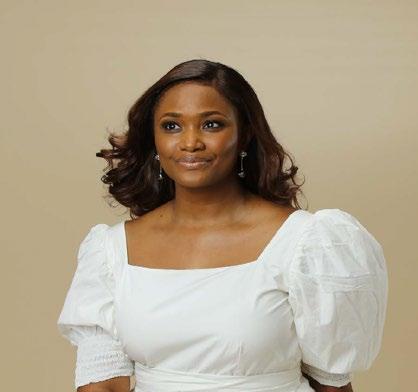




TFor Okobi, being a father means everything. It’s his most important role beyond work. He thinks fatherhood is about love, presence, and guidance. According to him, showing up consistently, listening deeply, and being a steady source of support and encouragement is just the start. Being a dad means nurturing curiosity, teaching values like kindness and resilience, and helping shape his children’s confidence and purpose. With regard to how fatherhood has shaped his values and how he approaches work, Okobi says that fatherhood has given him a greater sense of responsibility, not just to his family but to the people and communities his work impacts. He has become more empathetic, intentional, and focused on legacy.
Like most parents, Okobi sees glimpses of himself in his children, often in the smallest, most heartwarming ways.
Amaechi Okobi’s interview makes for an interesting read. Scroll to pages 8 to 10 for his story on work and fatherhood.
Our fashion pages feature men’s accessories. While some people tend to focus on clothes and shoes in men’s fashion, the truth is that small details set a stylish man apart. In that department, accessories are right at the top. Scroll to pages 4 and 5 to learn more.
The Wellness page shows modern dads how to care for themselves so they can show up for their families. You’ll find this on page 13.
Scroll to page 16 to read the movie review and download the playlist. You’ll enjoy it.
Happy Father’s Day!
Until next week, enjoy your read.








SUNDAY, JUNE 15, 2025






BY THEWILL EDITORS
It is significant that the first President whose victory transitioned Nigeria from 29 years of military rule to civil rule in 1999 and ruled for eight years, Olusegun Obasanjo, would make a remarkable volteface on democracy, 26 years after.
At a meeting held in May 2025 and convened by lawmakers seeking a return to the parliamentary system of government, Obasanjo called for the rejection of liberal democracy which he considered foreign to the African culture and her past and advocated “Afrocacy’, a political system that is indigenous to Africa.
Incidentally, it was Obasanjo as military Head of State that midwifed the current presidential system of government for Nigeria in 1976.
alien technology and designed homes. It asks why it is difficult for us to adhere to the rule of law, respect rules governing the separation of powers among the three arms of government, conduct free and fair polls and embrace mass inclusion.
major opposition parties, the Alliance for Democracy, AD and the All Peoples Party, APP.
With this beginning, one of the major drawbacks of democratic governance in Nigeria was unwittingly given further boost: That is ethnic identity which has continued to define the voting pattern, feed mutual suspicion among the diverse groups in Nigeria, negatively impact merit over nepotism and above all, fuel systemic corruption in diverse ways.

Another school of thought opposes Obasanjo’s viewpoint, which has gained significant traction among notable Nigerians who feel short-changed by democracy. The school of thought asks salient questions: If we can buy and drive foreign cars, wear foreign clothes, import and eat foreign food while making use of
Indeed, the military laid the foundation of the Fourth Republic with compromise, which carried all the seeds of the past that yielded bad fruits for Nigerians. Following the preceding upheaval that marked the aborted June 12, 1993 presidential election presumed to have been won by Chief MKO Abiola, the General Abdulsalami Abubakar regime that supervised the transition to democratic governance in 1999 schemed a programme to pacify the Yoruba of the South-West, who were upset by the annulment of the results of the June 12, 1993 election and the subsequent death of Abiola in prison custody.
The two candidates in the 1999 Presidential poll, Obasanjo who ran on the platform of the People’s Democratic Party, PDP and a former Secretary to the Government of the Federation, Olu Falae were Yoruba like Abiola. Falae was backed by two

“Nigeria’s fourth republic has continued to manifest ills of the past,” Professor of Political Economy at the University of Lagos, Sylvester Akhaine, told THEWILL on Friday. “We identify four major pathologies. One is the absence of free and fair elections. Virtually all the elections since 1999 have been rigged in absolute disregard of the democratic method anchored on the principle of consent of the governed. It got so bad that the Commonwealth observer reported that Nigeria went below the standard it set for itself in 2007. The beneficiary of that election, President Umaru Musa Yar’Adua
admitted so and set up the Uwais Panel to reform the electoral process. Before then the third term genie reared its head and was quickly smashed by a combined force of the political elite and civil society organisations.”
Prof Akhaine listed the other three ills plaguing democratic governance as human right violation exemplified by incidents, such as the Odi, Zaki Ibiam and more recently, Okuama massacres, including insurgency and banditry; mismanagement of public funds; the unproductive nature of the economy and a voting pattern dominated by ethnic identity.
Generally speaking, 26 years of unbroken democracy in Nigeria indicate possibilities, but the ensuing data is frightening.
With a population of 200 million, Nigeria is the world’s sixth largest country and Africa’s largest oil producer. She is also rich in mineral resources.
Unfortunately Nigeria is yet to maximise its potential and to rewrite the sad story of the past 26 years, particularly in the areas of unemployment currently standing at 53.04 per cent, double-digit inflation at 23.71 per cent, food insecurity, according to the National Bureau of Statistics.
Electricity supply, a crucial index of development, has hovered around 5,777 watts in the past 20 years. In a bid to improve the electricity sector for better performance and enhanced service delivery, the Federal Government in 2013 embarked on the privatisation of the electricity sector. It aimed to improve efficiency, enhance overall power supply and attract investment. Sadly the end result has been irregular power supply, which has greatly affected the productive capacity of manufacturers and small scale businesses, no thanks to frequent grid collapse.
In the last four years, the government has secured $3.4 billion loans from international financial institutions, notably the World Bank, Africa Development Bank and the Japan International Cooperation Agency, to improve the sector.
2013 approved the setting up of a Public Private Partnership styled Infrastructure company named Infra-Co with an initial seed capital of N1trillion.
Expected to “grow to N15 Trillion in assets and capital, Infra-Co, wholly dedicated to Nigeria’s infrastructural development with initial seed capital for the entity coming from the Central Bank of Nigeria, the Nigerian Sovereign Investment Authority, NSIA, and the Africa Finance Corporation, was meant to address Nigeria’s infrastructure deficit, finance public asset development, rehabilitation and reconstruction, as well as invest in cutting edge infrastructure projects for roads, rail, power and other key sectors.
Nevertheless, Professor of Strategic and Development Studies at the Commonwealth Institute of Advanced and Professional Studies, Anthony Kila, sees some cause for celebration. Although he contends that the governing elite is still confused about what the tenets of democracy governance entails, he said the 26 years of unbroken democratic practice is a significant milestone.
Speaking to THEWILL on Saturday afternoon, he said, “Those born in 1999 will be 26 years-old this year. That means we have practised democracy for almost a generation. Those born 26 years ago have only witnessed democratic rule, unlike many of us who witnessed military rule for a longer time. So, this is a generational shift. For successfully making June 12 Democracy Day, the government has also made a significant symbolic statement. People who stood up to the junta that annulled that election and generations to come will feel elated that the moment they fought against tyranny has been etched in
the annals of Nigerian history. Then two major political parties, the APC and the PDP have made a peaceful handover in governance, both at the federal and state levels,”
Political participation in Nigeria in the past 26 years has, arguably, declined, particularly in matters dealing with citizen’s engagement in the political process, voting, activism and representation in government.
While Nigeria has made strides in promoting political participation, with the Youth Bill, officially known as the “Not Too Young To Run” bill, 2018; Discrimination Against Persons with Disabilities (Prohibition) Act, 2018; National Gender Policy in 2006, revised in 2021 alongside constitutional amendments to relevant sections of the 1999 Constitution to strengthen democratic institutions and protect voting rights, issues like voter apathy, political polarisation and barriers to entry for certain groups, particularly women and youth, persist. in politicians and perceptions that their participation won’t make a difference, has grown among the citizenry over the years.
A functioning democracy must operate a mutual interdependence of the three arms of government, namely the Executive for implementation of law, the Judiciary for interpretation of laws and the Legislature for the making of law and oversight over the executive for accountability and good governance. But most Nigerians over the years have an abusive word, developed over the years with varying application for their National Assembly. It is called “rubber stamp.”


Still, the Minister of Power, Adelabu Adebayo, disclosed recently that Nigeria needs $10bn over the next 10 years to achieve 24-hour power supply across the country.
That is why the World Economic Forum ranked Nigeria 130th out of 141 countries in infrastructure quality in 2024.
This ranking is coming six years after the Muhammadu Buhari Administration in
“ hose born in 1999 will be 26 yearsold this year. That means we have practised democracy for almost a generation. Those born 26 years ago have only witnessed democratic rule, unlike many of us who witnessed military rule for a longer time. So, this is a generational shift. For successfully making June 12 Democracy Day
Despite recent denials and explanations of the role of the National Assembly by Senate Majority Leader, Bamidele Opeyemi and President of the Senate, Godswill Akpabio that the NASS exists representation and oversight, a of Nigerians, going by their public debates and social media reactions over the years, continue to see the NASS as “rubber stamp,” a terminology for tool, ready to the
No better person than the ex-President of the Senate, Dr. Bukola Saraki made the point on June 12 when he published on his social media page, a speech that time did not permit him to deliver at the National Assembly after President Bola Tinubu finished his address to a the National Assembly on Democracy Day.



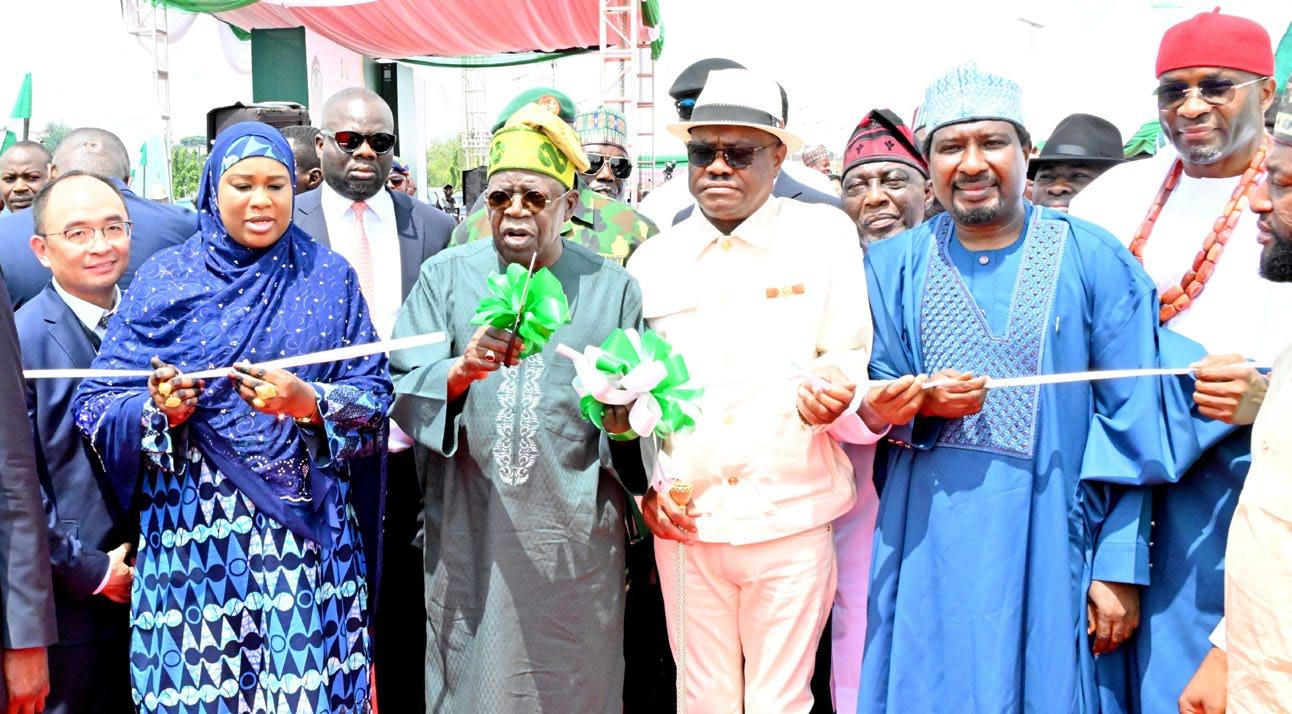
BY FELIX IFIJEH
The Rivers State Caucus in the National Assembly has faulted the position of the lawmaker representing Bayelsa West, Seriake Dickson, that the state is under military rule.
Dickson, on Thursday, in reaction to President Bola Tinubu’s nationwide address on Democracy Day, expressed displeasure over the failure of the President to restore a democratically elected government in Rivers state.
The Minority Leader in the House of Representatives, Hon. Kingsley Chinda, who spoke on behalf of the Caucus during a press briefing held in Abuja, accused the former Bayelsa State Governor of instigating crisis in the state.
While arguing that Senator Dickson is grossly incompetent and unfit to claim to protect democracy, Chinda accused him of desecrating the judiciary when he led thugs and armed men to disperse and disrupt proceedings at a Federal High Court in the state while serving as Governor.
He said, “We are members of the Rivers State Caucus in the National Assembly, which includes Senators and Members of the House of Representatives, and we have found it necessary to speak to Nigerians on incidents that occurred very recently. So, you have this emergency press briefing by the Rivers State National Assembly Caucus to condemn Senator Seriake Dickson’s unwarranted comments on Rivers State’s


emergency rule.
“As members of the Rivers State Caucus in the National Assembly, we watched with utter dismay the vituperations of Senator Henry Seriake Dickson of Bayelsa West Senatorial District in his press briefing, wherein he expressed his anger at the emergency rule in Rivers State and chided the President of the Federal Republic for not using his June 12 address before the National Assembly to restore suspended Governor Siminalayi Fubara to office.
“Let it be categorically stated that Rivers State is not under military rule. The current Administrator of the State, Vice Admiral (Retired) Ibok-Ete Ibas, is a retired military officer, just as Senator Seriake Dickson is himself a retired police corporal, but a serving senator. Both of them cannot be serving personnel of the Armed Forces.
“The implication of retirement is clear. Once an officer retires, he becomes a civilian, and any leadership role he occupies is subject to civilian laws, norms, and democratic oversight. To label the current administration as military rule is, therefore, misleading and intellectually disingenuous.
“The declaration of a state of emergency in Rivers State was a necessary constitutional intervention aimed at preserving peace, protecting lives, and restoring institutional order. The decision was not taken lightly. It was prompted by the rising tide of political instability and executive rascality within the
state.
“Also, the disregard for democratic institutions was one of the reasons why we had that declaration. This position was also affirmed by the Supreme Court judgement of 28th February, 2025, wherein the Supreme Court clearly stated that there was indeed no government in the state the way it was being operated then.
“It is imperative to highlight that the President of the Federal Republic of Nigeria, President Bola Ahmed Tinubu, acted swiftly and decisively to prevent the escalation of violence and systemic breakdown that loomed over our beloved state.
“The bold step averted a full-blown crisis. Without that timely intervention, orchestrated chaos would have overwhelmed the mechanism of governance and civil society in the state. The state of emergency declared in Rivers State is not a breach of the Constitution.
“Rather, it is a legitimate tool provided in Section 305 of our Constitution to restore sanity when democratic structures are under serious threat. It is, in fact, only recently that the suspended Governor himself, Governor Siminalayi Fubara, publicly thanked Mr President for saving the day when he declared the state of emergency in Rivers State. Therefore, Senator Seriake Dickson, the retired police corporal, cannot cry more than the bereaved.
BY ANTHONY AWUNOR
Air Peace, West and Central Africa’s largest airline, has made history with a nonstop flight from Abuja to Basseterre, the capital of St. Kitts & Nevis—marking the first time a Nigerian airline has landed in the Eastern Caribbean nation.
The milestone service, operated on June 12, 2025, with one of the airline’s Boeing 777 aircraft, departed from the Nnamdi Azikiwe International Airport and arrived at the Robert L. Bradshaw International Airport, placing a Nigerian dateline on the St. Kitts & Nevis arrivals board for the first time ever.
The historic flight was arranged for a Pan-African business conference, and it carried Nigerian government and business delegations, further reinforcing Air Peace’s ambition and capacity for global connectivity.
This marks the airline’s third foray into the Caribbean in just five years.
In December 2020, Air Peace operated a landmark 11hour direct flight from Lagos to Montego Bay, Jamaica— pioneering the first nonstop air link between Nigeria and the island nation.
On August 5, 2023, another Boeing 777 operated a special flight from Lagos to Antigua & Barbuda, carrying investors and carnival enthusiasts, and earning the airline the distinction of being the first Nigerian carrier to land in the twin-island country.
Now, with the successful June 12 service to St. Kitts & Nevis, Air Peace completes a triad of Caribbean firsts— establishing direct Nigerian access to three key territories in the region.
The Abuja–St. Kitts flight was operated with one of Air

Peace’s Boeing 777 aircraft—the same long-range jets used on its daily Lagos–London Gatwick service, launched on March 30, 2024, marking another major milestone in the airline’s international expansion.
Air Peace Chairman and CEO, Dr. Allen Onyema, has indicated that more wide-body aircraft are on the way. In an April 2024 interview with Arise TV, he revealed plans to acquire additional long-haul jets to support new international routes, including Abuja–London and upcoming services to Houston and New York.
With the successful landing in St. Kitts, Air Peace continues to cement its reputation as a bold trailblazer in African aviation.
Its growing international footprint underscores a clear message: Nigeria to the world—no stops, no limits.
members of Enugu State Committee on Primary Prevention of HIV Among Women of Child Bearing Age (PMTCT) and Pediatrics Acceleration in Enugu on June 11, 2025.
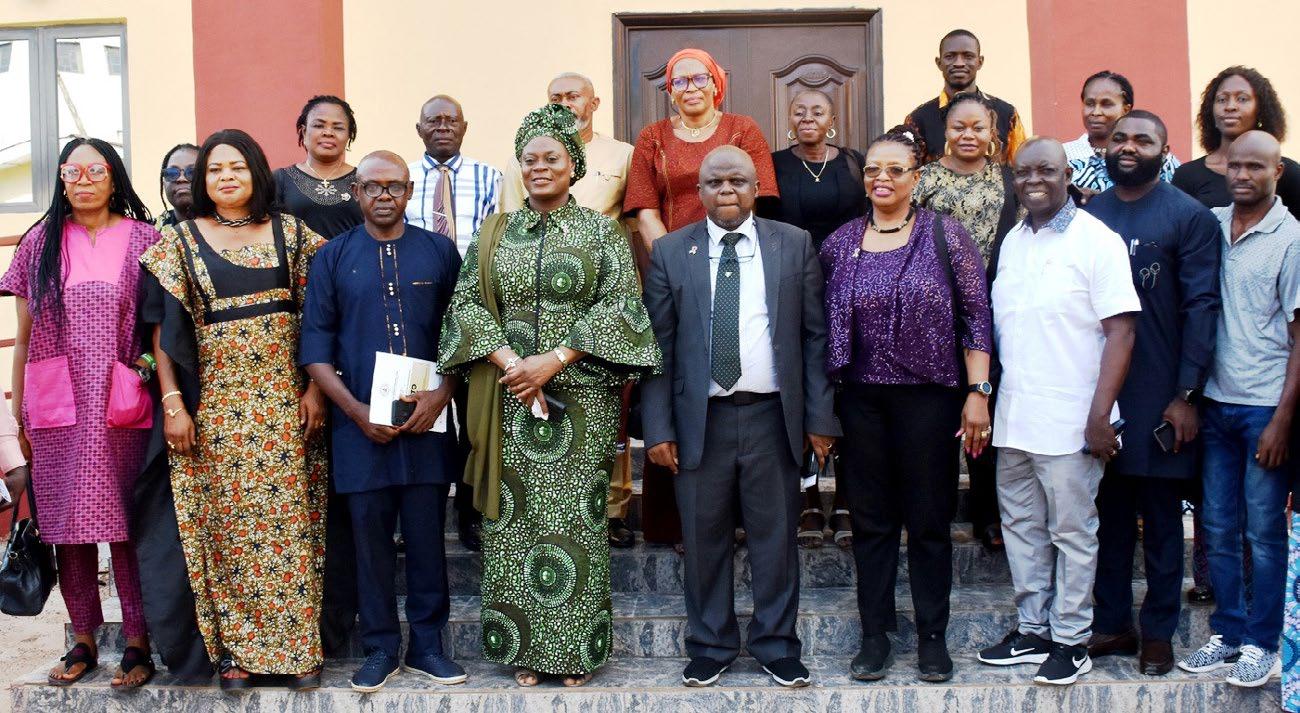
BY FELIX IFIJEH
The Federal Government has ordered an investigation into the altercation between Air Peace and Senator Adams Oshiomhole at the Murtala Muhammed Airport in Lagos on Wednesday.
Minister of Aviation and Aerospace Development, Festus Keyamo, disclosed in a statement on X (formerly Twitter) on Friday that he has been in direct contact with both parties since the incident occurred. He urged all aviation agencies to remain neutral and avoid rushing to judgment.
“In the wake of the incident at the Lagos Airport last Wednesday involving Air Peace and His Excellency, Senator Adams Oshiomhole, I have been in direct contact with both parties since that morning.
“I also directed the aviation agencies to exercise restraint
in jumping to conclusions, in line with the time-honoured legal principle of ‘hear all sides’ before reaching judgment,” Keyamo said. The minister called for calm and urged both sides to stop trading accusations in public, pending the outcome of the investigation.
“I am further directing the relevant aviation agencies to thoroughly look into the issue, collect all available evidence, and revert to my office so we can address the matter in a way that guides future conduct in similar situations,” he added.
The confrontation reportedly began after Senator Oshiomhole missed his scheduled Air Peace flight (P47120).
According to the airline, he arrived at Terminal 1 (Zulu Hall) around 6:10 a.m., after boarding had closed.
The airline alleged that the senator reacted angrily, blocked
the terminal entrance, and disrupted airport operations.
“He went as far as sealing the entry gate and manning the access point, effectively obstructing other passengers from gaining entry into the terminal,” Air Peace stated.
The incident led to delays, forcing the airline to activate a contingency plan to process affected passengers through an alternate terminal. Air Peace condemned what it described as “unruly” and “unacceptable” conduct by a public figure, restating its zero-tolerance policy for violence or aggression towards its staff and passengers.
While both sides continue to issue conflicting accounts, Keyamo’s intervention marks the beginning of an official review, with the outcome expected to shape future handling of similar incidents in the aviation sector.
The Federal Capital Territory Minister, Nyesom Wike, has declared that no amount of criticism will derail the President Bola Tinubu administration’s commitment to completing abandoned projects across Abuja.
A former Senator, who represented Kaduna Central in the National Assembly, Shehu Sani, on Tuesday, urged President Tinubu to reject the renaming of the Abuja International Conference Centre (ICC) after him.
“The International Conference Centre Abuja was built by IBB. The
President should reject renaming the place with his name”, Sani wrote on Tuesday in his official Facebook page.
Responding to Sani and other critics on Friday, during the commissioning of the Apo-Wassa Road, one of the key access routes under the Outer Southern Expressway (OSEX) project, Wike lashed out at detractors, who, according to him, deliberately ignore the realities of development unfolding across the nation’s capital.
“If you want to die because we named the refurbished International
Conference Centre after Mr President, go and die. I have land to bury you. If you cannot commend someone who has done well for the country, then the problem is yours. This is not about petty politics. We’re focused on real development, not social media noise.
“Yes, we are politicians, and criticism is part of the game. But that doesn’t mean you should lie or pretend not to see what is obvious. If God gave you eyes and you still choose not to see, then remain blind. It’s your choice”, he said.

Iran has accused the United States of complicity in what it described as Israel’s “premeditated military aggression” that left more than 100 people dead, including nuclear scientists and military personnel, in overnight airstrikes.
Speaking at an emergency session of the United Nations Security Council on Friday, Iran’s Ambassador to the UN, Amir-Saeid Iravani, condemned the strikes, branding them as “state terrorism” jointly orchestrated by Washington and Tel Aviv. Ambassador Iravani claimed Israel carried out the attacks “with full intelligence and political support from the United States administration,” alleging direct U.S. involvement in supplying weapons and intelligence used in the assault.
“U.S. officials have expressly and brazenly confessed their willful aid and assistance in the crimes, including their deliberate transfer of arms,” Iravani said.
He highlighted the human toll of the attack, stating, “We will not forget that our people lost their lives as a result of Israeli attacks with American weapons.”
Among the primary targets was Iran’s Natanz nuclear facility, a site under full monitoring by the International Atomic Energy Agency (IAEA). Iravani warned that the strikes risked “catastrophic radiological consequences” for the region and accused Israel of trying to derail ongoing nuclear talks.
The ambassador also criticised what he called the inaction of the UN and the IAEA, stating that their silence had “emboldened this rogue regime.”
He cited UN Security Council Resolution 487 (1981), which condemned Israel’s strike on Iraq’s Osirak reactor, as evidence of the Council’s “decades-long pattern of double standards.”
“Those who support this regime, with the United States at the forefront, must understand they are complicit,” Iravani said, accusing Washington of deliberately undermining international peace and diplomacy.
He linked the Israeli assault to broader U.S. efforts to sabotage diplomatic engagement, adding, “The U.S. orchestrated this chaos to kill diplomacy.”
Reiterating Iran’s previous warnings, Iravani said the country would invoke its right to self-defense under Article 51 of the UN Charter.
“Iran will respond decisively and proportionately — at a time, in a place, and by means of its choosing,” he declared, calling the response “inevitable” to restore deterrence and hold aggressors accountable.
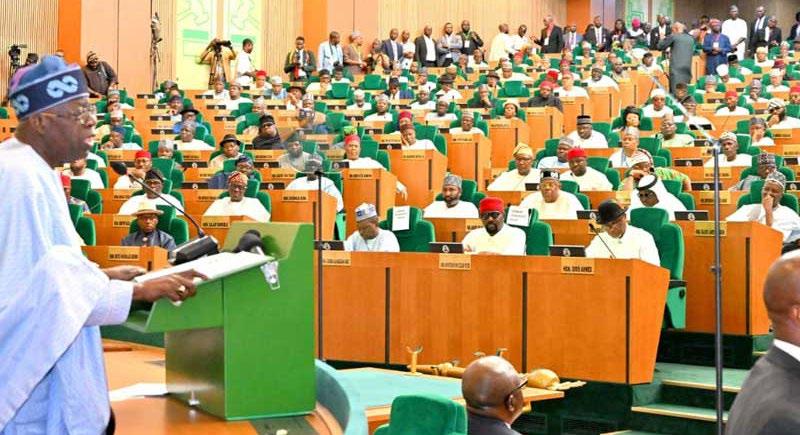
BY FELIX IFIJEH
The Lagos Division of the Court of Appeal has discharged and acquitted a former Director-General of the Nigerian Maritime Administration and Safety Agency (NIMASA), Patrick Akpobolokemi, of alleged N754.8 million fraud. In a unanimous judgement on Friday, the appellate court quashed the 12-count charge filed against Akpobolokemi by the Economic and Financial Crimes Commission (EFCC) and set aside the ruling of the Ikeja High Court which dismissed his no-case submission. The anti-graft agency had accused Akpobolokemi of conspiracy, stealing, and forgery in connection with alleged
illegal transfers from the account of the VIMSAS Committee. At the lower court, Justice Raliatu Adebiyi had ruled that the EFCC had established a prima facie case on some of the counts and ordered Akpobolokemi and his co-defendant to open their defence.
Akpobolokemi, through his lawyers Collins Ogbonna and Kunle Gbolahan, appealed the ruling, arguing that the EFCC failed to link him to any wrongdoing and relied on inadmissible evidence and unreliable witness testimonies, including those of PW9, PW10, and PW11, as well as Exhibits P59–P61.
Ruling on Friday, the Court of Appeal held that Akpobolokemi
was neither a member of the VIMSAS Committee nor a signatory to any of the Committee’s accounts; Holding that the appellant neither signed nor approved any withdrawal instructions or internal memos related to the alleged fraudulent transfers, the appellate court held that a trial court cannot rely on inadmissible evidence even if no objection is raised during trial and concluded that such evidence should have been excluded.
Citing the principle that “a court must act only on evidence admissible in law”, the appellate court struck out the charges and acquitted Akpobolokemi.
Nigeria’s total imports in the first quarter of 2025 dropped to N15.43 trillion, representing a 7.51% decrease or N1.16 trillion compared to the N16.59 trillion recorded in the fourth quarter of 2024, the National Bureau of Statistics (NBS) disclosed in its latest foreign trade report.
However, the amount was 4.59% higher year-on-year compared to the first quarter of the 2024 financial year.
While the country recorded a positive trade balance in the first quarter of 2025, the trade surplus shrank by 20.1% y-o-y, falling from N6.52 trillion in the first quarter of 2024 to N5.17 trillion this year.
Nigeria’s total merchandise trade stood at N36.02 trillion
during the quarter, recording a 6.19 percent y-o-y rise, but a 1.58 percent decline from N36.6 trillion in the fourth quarter of 2024, indicating a quarterly contraction in external trade activity. The report showed that exports accounted for 57.18 percent of total trade, amounting to N20.60 trillion, up 7.42 percent from the N19.18 trillion recorded in the first quarter of 2024.
Crude oil continued to dominate trading for the quarter, making up 62.89% of total exports, standing at N12.95 trillion, while non-oil exports contributed N3.16 trillion or 15.38% of the total export, underscoring Nigeria’s continued dependence on hydrocarbon revenues.
According to the report, Nigeria’s top import partners were China, followed by India, the United States, the Netherlands, and the UAE.
The main imported commodities were automotive gas oil, premium motor spirit (petrol), crude petroleum oils, cane sugar, and durum wheat. On the export side, major shipments were dominated by petroleum oils, light fuel oil, electrical energy, urea, and other light oils, which collectively represented 90.21% of total exports to the continent.
Nigeria’s trade data for the first quarter of 2025 underscores the fragile recovery of domestic consumption and the continued imbalance in trade structure, with oil exports vastly outpacing diversified, value-added exports.
BY AMOS OKIOMA
The Governor of Bayelsa State, Senator Douye Diri, will deliver the 35th convocation lecture of the University of Port Harcourt in Rivers State on July 25, 2025.
Governor Diri gave his consent during the courtesy visit of the institution’s management, led by the Vice Chancellor, Prof. Owunari Georgewill, to the Government House, Yenagoa, on Friday.
Prof. Georgewill said the institution was proud to have the governor as an alumnus.
He stated that Bayelsa under Diri was experiencing rapid transformation as virtually all sectors of the state’s economy had been positively affected by his administration.
The VC also said the institution was pleased to be associated with the governor and that it was a huge privilege to have him as a product of the school.
He appealed to the governor to consider a legacy project as a way of giving back to the institution, which he noted will also help it cope with the rising number of students and staff. While accepting the offer, Governor Douye Diri said that as an alumnus, he was bound to be part of the institution’s activities. He commended the UNIPORT management for maintaining excellence in the institution, stressing that education was crucial to the development of society.
Diri noted that leaders who fail to invest in education would

have to deal with the consequences of crime and criminality. He restated his administration’s commitment to developing the sector, as society would not progress without education.
The Bayelsa helmsman explained that the state had shifted focus from paper qualification to science, technical and vocational education, and that the government had already completed tuition-free technical colleges in six out of the eight local government areas, with the contract for the other two awarded.
His words, “If you ignore education, then you have to build more prisons because crime will soar. For us as a government, education is a priority.
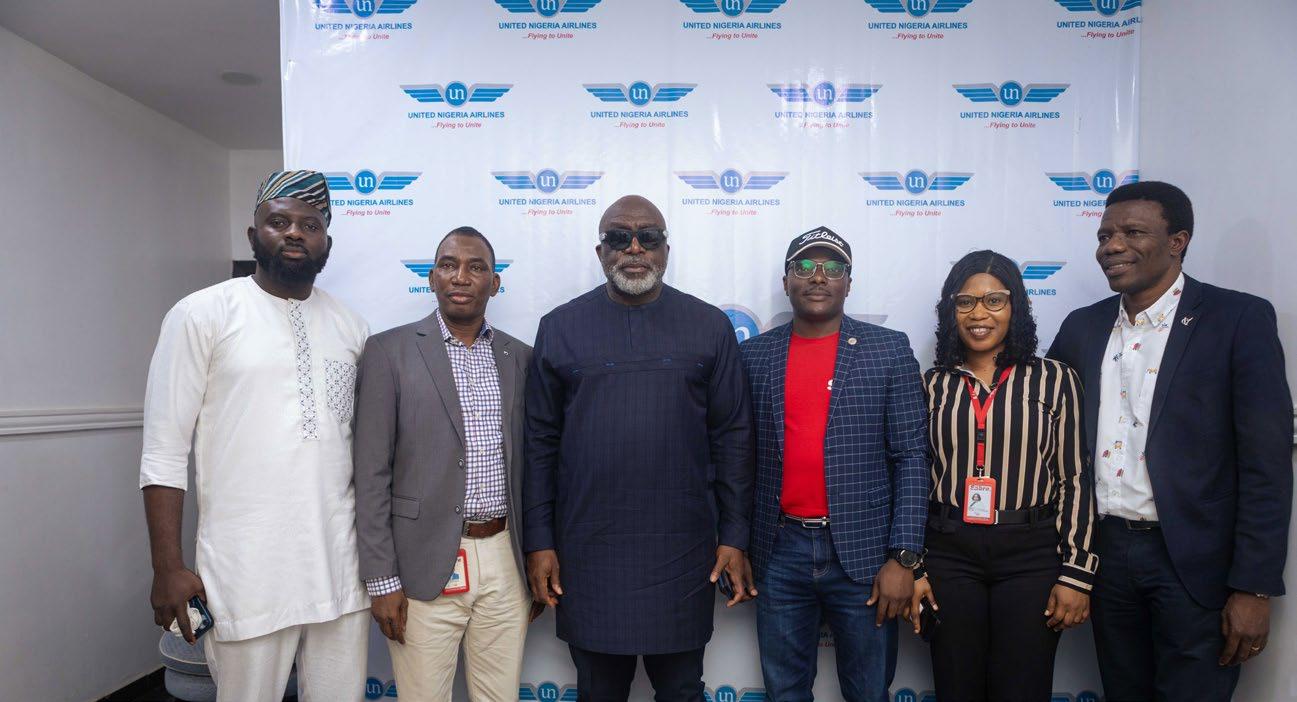
The Economic and Financial Crimes Commission, EFCC on Friday, June 13, 2025 arraigned the duo of Halima Buba and Innocent Mbagwu before Justice Emeka Nwite of the Federal High Court, Abuja for alleged fraud. The defendants, who are Managing Director/Chief Executive Officer of SunTrust Bank Ltd and Executive Director/Chief Compliance Officer of SunTrust Bank Ltd, respectively are being prosecuted on a six-count charge, bordering on money laundering to the tune of $12 million. They pleaded “not guilty” to all the charges when they read to them, following which the lead prosecution counsel, Rotimi Oyedepo, SAN announced the readiness
of the prosecution to proceed with the trial and prayed for accelerated hearing of the case. The defence counsel, J.J. Usman, SAN on his part, reminded the court of subsisting bail applications of the defendants, dated May 27, 2025 and prayed that the court should uphold the applications and admit the defendants to bail.
The prosecution counsel in his response, described the May 27, 2025 bail application of the defendants as incompetent, given that the defendants were neither under arrest, nor in detention, nor have appeared before the court, being the grounds provided by the Administration of Criminal Justice Act, ACJA that should precipitate a bail application, but
rather applied for bail from the comfort of their homes or offices when nor action has been taken against them. He therefore prayed the court to discountenance the said bail application and urged the defendants to make fresh bail applications in court.
While the position of the prosecution met opposition from the defence, Justice Nwite, however, admitted the defendants to bail in the sum of N100million (One Hundred Million Naira), each as well as one surety each, in like sum. The sureties he held must have landed properties in Abuja of which the particulars of the properties would be deposited with the court. The sureties are also to deposit their passports and two recent passport photographs with the court. In addition, all the documents the sureties provided, including their residences must be verified by the court before approval.
He ordered that they should be remanded in correctional facility pending the fulfilment of their bail conditions and adjourned the matter till July 17 and 18 for continuation of trial.
BY FELIX IFIJEH
The Nigerian National Petroleum Company (NNPC) Limited announced a revenue of N5.89 trillion and a Profit After Tax (PAT) of N748 billion for April 2025.
The company, in a Monthly Report Summary posted on its website, also declared a statutory transfers of N4.225 trillion in the first three months of the year—January to March 2025.
According to the document, NNPC’s crude oil and condensate production averaged 1.61 million barrels per day in April, while production figures for January, February, and March were 1.67mbpd, 1.62mbpd, and 1.56mbpd, respectively.
first three months of the year were January (7,120mmscf/d), February (6,615mmscf/d), and March (6,928mmscf/d), as it pointed out that “All financial figures are provisional and unaudited”.
While clarifying that the figures reflect only its operations and exclude data from independent operators reported by the Nigerian Upstream Petroleum Regulatory Commission (NUPRC), the NNPC said petrol availability at its retail stations was 54 percent during the month, with upstream pipeline availability at 97 percent.
The report also added that natural gas production for April was 7.47 million standard cubic feet per day, while figures for the
NNPC said it was working with venture partners to enhance sustainable production and has completed the implementation of relevant presidential directives and Executive Orders for its
upstream operations. Technical interventions on the AjaokutaKaduna-Kano (AKK) pipeline and the Obiafu-ObrikomOben (OB3) gas pipeline were also noted, with the OB3 project being 95 percent completed and the AKK pipeline 70 percent completed. The report also revealed several key final investment decisions (FIDs) scheduled for the fourth quarter of 2025, which include the “Ntokon Development Project (OML 102), the Crude Oil Production Expansion Project (OML 29), gas development projects in OML 30 and OML 42, and the financial close of the Brass Fertiliser project.”
The company emphasises that all financial figures are provisional and unaudited, covering operational and financial data for April unless otherwise specified.
The Federal Government of Nigeria has condemned Israel’s preemptive strike on Iran, warning that the escalating hostilities between both nations pose a grave threat to regional and global peace. Tensions in the Middle East reached a boiling point on Friday following Israel’s sweeping military operation targeting Iran’s nuclear facilities and long-range missile capabilities.
The airstrikes triggered a wave of retaliatory missile and aerial attacks, escalating fears of a broader regional conflict. While Israeli Prime Minister Benjamin Netanyahu described the
operation as a “targeted military action to roll back the Iranian threat to Israel’s survival,” Nigeria expressed deep concern over the spiraling violence.
In a statement issued Saturday by Kimiebi Ebienfa, spokesperson for the Ministry of Foreign Affairs, Nigeria condemned the Israeli action and urged both sides to show restraint.
The statement read, “The Government of the Federal Republic of Nigeria condemns Israel’s preemptive strike on Iran, which has led to an escalation of hostilities between the Islamic

Republic of Iran and the State of Israel, marked by sustained missile and aerial exchanges across both territories.
“Nigeria expresses its grave concern and calls for an immediate cessation of hostilities. We urge both parties to exercise utmost restraint in the interest of regional and global peace.”
The statement warned that continued retaliatory attacks not only endanger civilian lives but risk destabilising the wider Middle East, with far-reaching implications for global security and economic stability.



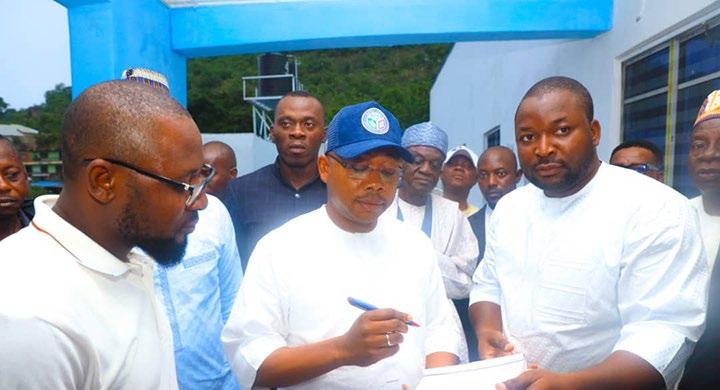
Senator representing Kogi West Senatorial District, Sunday Karimi, has declared that the federal government should not be held responsible for the slow or near-non Implementation of the Supreme Court judgement granting local government financial autonomy, barely a year ago.
Karimi said that President Tinubu’s vision leading to the favourable judgement of the Supreme Court is aimed at freeing the people from slavery and underdevelopment, which starts with financial autonomy for the third tier of government. Karimi made the clarification while giving an account of his stewardship in the last two years in the 10th Senate during a media parley at the Nigeria Union of Journalists (NUJ) Press Centre, Lokoja
He urged Nigerians to continue to support the President in his effort to bring good governance close to the people at the grassroots.
He said, “The provisions of Section 235 of the 1999 Constitution of Nigeria, (As Amended) within Chapter 7, Part 1, deals with the finality of determinations by the Supreme Court. It states that no appeal can be made to any other body or person from a decision of the Supreme Court, except for the powers of the President or a state Governor regarding the prerogative of mercy. In essence, this section establishes the Supreme Court as the final
arbiter of legal disputes within the country, with its decisions being binding and unappealable.
“Without prejudice to the powers of the President or of the Governor of a state with respect to the prerogative of mercy, no appeal shall lie with any other body or person(s) to revalidate the already determined matter or dispute by the Supreme Court.
In view of the provisions of the above section of the Constitution, Senator Karimi was asked during the interactive session to explain why the Senate has not deemed it fit to give any legislative backing to the Supreme Court judgement of the 11th July, 2024 on local government autonomy.
Responding, the lawmaker described the Supreme Court judgement granting full LG autonomy to the Councils as the President’s trump card to legally and holistically address the local government challenges once and for all.
“That was why the Attorney General and Minister of Justice of the Federation went to the Supreme Court to institute that case”, he said.
He emphasized the importance of local government autonomy, stating that the case instituted by the Attorney General at the Supreme Court, and midwived by President Bola Ahmed Tinubu, demonstrates the Federal

Government’s commitment and support for a functional local government system in the country.
He further stressed that “As a means of solving local government problems, the president wants autonomy for local government. If the Federal Government of Nigeria doesn’t want local government autonomy, it wouldn’t have instituted the case in the first place. And for us in the National Assembly, we are fully in support of local government autonomy and the steps so far taken to restore proper governance at the local level in Nigeria.
“I don’t want to say much about it before I come in. But we will talk about it. Local government autonomy must come to stay. It’s not for the National Assembly alone but for the good of every Nigerian, therefore, it is a fight for all of us, because if we keep quiet, that autonomy will not stand. But if we talk, it will stand. I am not the one who brought this question in. Somebody brought it, but I have to speak to it. And I have to speak the truth always. Some people are not interested in this local government autonomy”.
Senator Karimi noted that the leadership of the National Assembly, including the Senate President Godswill Akpabio and Speaker, House of Representatives, Tajudeen Abbas, were in full support of the Local Government Autonomy.
BY FELIX IFIJEH
The Federal Ministry of Agriculture and Food Security has suspended its proposed prayer and fasting scheme intended to seek divine intervention in addressing the country’s growing hunger crisis.
The suspension comes just days after a leaked internal circular, dated June 11, 2025, instructed staff including directors, deputy directors, assistant directors, and value chain officers to attend weekly spiritual sessions at the ministry’s headquarters in Abuja.
The directive, signed by the Director of Human Resource Management, Mrs. Adedayo Modupe O., had scheduled the sessions for June 16, 23, and 30, under the theme “Divine Intervention for Protection and National Development.” The aim was to seek spiritual support for
the government’s efforts to ensure food security. However, in a follow-up memo issued by the same official, the programme was postponed until further notice. No reasons were provided for the change.
The ministry’s decision to cancel the sessions followed widespread criticism from the public and media. Many Nigerians expressed concern over the appropriateness of turning to spiritual measures while food prices continue to rise and millions face severe hunger. Critics called for practical solutions and stronger policy responses to tackle the ongoing food insecurity instead of relying on religious gatherings.
Addressed to all directors, deputy directors, assistant directors, value chain desk officers, and other staff

members, the memo said the theme of the prayer is “Divine Intervention for Protection and National Development.”
The circular emphasized the importance of seeking spiritual guidance amid ongoing efforts by the Federal Government to stabilise and secure the nation’s food systems.
“This is to invite all staff of the Federal Ministry of Agriculture and Food Security to a solemn prayer session for God’s guidance and success in supporting the government’s efforts to achieve food security,” it read.
Staff were further directed to observe a fast on each of the designated days, as part of the ministry’s call for divine assistance in confronting the country’s food security challenges.

BY FELXI IFIJEH
Governor Seyi Makinde of Oyo State has rekindled another round of debate over a proposed constitutional amendment for a single term of five or six years for elected officials at all levels of government in Nigeria.
The idea has been on the front burner since 2011 when former President Goodluck Jonathan muted it and he was forced to beat a retreat following an accusation of self-succession, revived last year by a group of lawmakers in the House of Representatives where it passed second reading before it was thrown out.
Speaking from experience, Governor Makinde, who is serving the sixth year of his two-term tenure, said the adoption of a single five or six -year tenure for elected officials would ensure focused service delivery.
Speaking during a visit from a delegation of Muslim faithful, including clerics, traditional rulers and political leaders, at his residence in Ikolaba, Ibadan, following the Eid-el-Kabir prayers at Agodi Eid Ground, the governor stressed the need for a focused governance period, suggesting that a single six-year term would allow leaders to concentrate on their mandates without the distractions of re-election campaigns.
“I was just looking at the trajectory for me in government. I have spent six years already and due to no fault of anybody, we lost the year 2020 because of the COVID-19 pandemic,” he told the delegation, led by Deputy Governor Bayo Lawal, including prominent figures such as Senator Rashidi Ladoja, former Deputy Governor, Amb. Taofeek Arapaja and Aare Musulumi of Yorubaland, Alhaji Dawodu Makanjuola.
He further said, “We lost almost one year, campaigning all over the place for the second tenure. Now, people have started distracting us on what I want to do next and all of that. So, I feel that, effectively, the time we can say we are very serious with governance is just about five out of the eight years.
“That is why I feel if you remove these distractions, a single tenure of five or six years is actually enough to focus and do the work that we are trying to do in eight years. “Well, we shouldn’t be afraid to say the facts based on data that is available to us. It has nothing to do with me. If they say I should end it, so be it.
Referencing the ongoing discussions around the issue in the National Assembly, Makinde called for broader consideration of the proposal among the populace.
“So, I am just calling the attention of our people to this because it is a constitutional issue. We should start looking at it. I know that it has been brought to the attention of the National Assembly but, quite frankly, it is a model that should work for this country.”
Makinde’s proposal is however coming eight months after the House of Representatives on November 21, 2024 rejected a bill seeking to amend the 1999 constitution to allow for a single tenure of six years

for the President, state governors and area council chairmen.
The bill, sponsored by the member representing the Ideato North/Ideato South Federal Constituency, Imo State, Ikenga Ugochinyere and 33 others, also sought the rotation of the Office of the President between the North and South regions and the governorship among the three senatorial districts in each state of the federation.
The proposed legislation seeks to alter Sections 76, 116, 132, and 136 in the 1999 Constitution (as amended).
The general principles of the bill noted, “These amendments are to ensure inclusive governance and to curb wastages occasioned by four-year periodic elections.
“The bill, among others, seeks amendment of Section 132 of the Principal Act by inserting a new subsection (2), deleting the extant subsection (4) and renumbering the entire section accordingly to provide that an election to the office of President of the Federal Republic of Nigeria shall be rotated between the North and the South regions of the country every six years.
“Other amendments include, Section 76 of the Principal Act is altered by inserting a new subsection (3) as follows; (3) For the purposes of Section (1) of this section, all elections into the offices of President, Governors, National Assembly and State Houses of Assembly shall hold simultaneously on the same date to be determined by the Independent National Electoral Commission in consultation with the National Assembly and accordance with the Electoral Act.
“If a person duly elected as President dies before
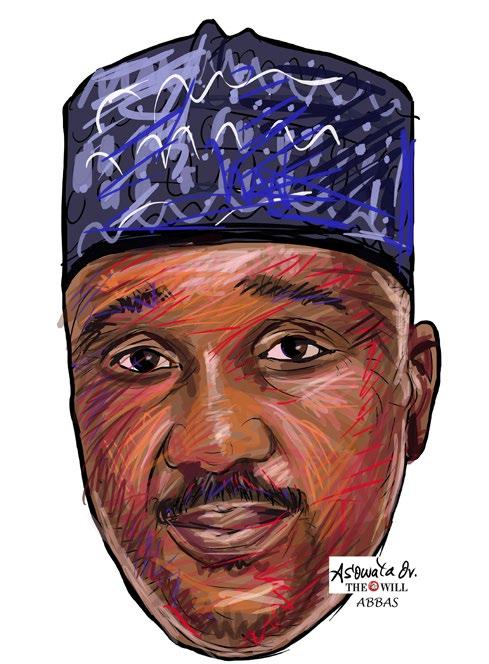
taking and subscribing to the oath of allegiance and oath of office or is for any reason whatsoever unable to be sworn in, the person elected with him as First Vice President shall be sworn in as President and he shall appoint a new First Vice President with the approval by a simple majority of the National Assembly at a joint sitting.”
The bill was rejected by the lawmakers when it was put to a voice vote by the Speaker, Tajudeen Abbas who presided over the plenary.
In 2011, then President Goodluck Jonathan proposed a constitutional amendment to allow presidents to serve a single, six-year term instead of the current two four-year terms. The move, which Jonathan clarified wouldn't take effect until after his term ended, aimed to reduce the focus on re-election and encourage a more governance-oriented approach.
Despite reassurances that the he would not benefit from the proposed amendment, insisting that the idea was intended to come into effect in 2015, Jonathan was criticised by those who argued that the proposal was a power grab to extend his tenure, while others worried that a single six-year term might lead to corruption and abuse of power.
That is why I feel if you remove these distractions, a single tenure of five or six years is actually enough to focus and do the work that we are trying to do in eight years “








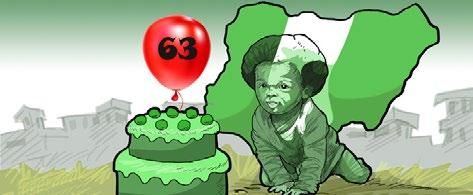





















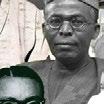








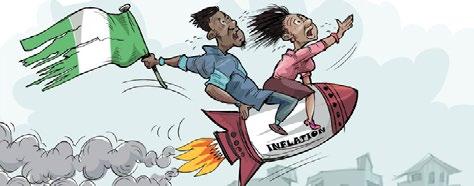


Center Spread Half Page N1, 300, 000
Double Spread N1, 550, 000

Double Spread Half Page N1, 200, 000
10X6 N700, 000
10X5 N650, 000
10X4 N600, 000
10X3 N500, 000
9X6 N440, 000
9X5 N395, 000
9X4 N335, 000
9X3 N310, 000

8X6 N410, 000

8X5 N380, 000
7X5 N320, 000
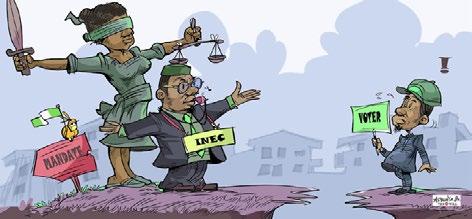



7X4 N315, 000
6X5 N280, 000

6X3 N145, 000
6X2 N85, 000
5X2 N70, 000
4X4 N160, 000
4X3 N95, 000
4X2 N65, 000
3X3 N60, 000
3X2 N50, 000
2X2 N30, 000
2X1 N15, 000
1X1 N7, 000
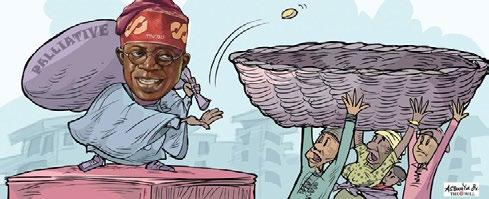


























OIt
also showed a significant breakthrough in intelligence gathering, while at the same time exposing a dangerous
system
that
shows “how the strength of terrorist groups like ISWAP lies in how they embedded in the local space and infiltrated circles as deep as inside the armoury of the 7th Division
peration Hadin Kai, the Joint Task Force in North East Operations against Boko Haram and ISWAP, recently announced the arrest of soldiers including an armourer, policemen, traditional rulers and civilians operating a support network for Boko Haram and ISWAP terrorists in Borno State. Those arrested include eight civilians,15 policemen and 18 soldiers under suspicion of selling weapons to terrorists.
A traditional ruler and an armourer with the 7th Division of the Nigerian Army, who is alleged to have been engaging in ‘such unprofessional conduct since 2018 and had N45 million in his bank account, another police inspector who has N35 million in his bank account and a soldier serving in the 3 Division Ordnance Corps, who also has the sum of N34 million in his bank account,’ are among the suspects.
The arrests, announced in May 2025, are not only commendable but also speak to the Nigerian Armed Forces’ determination to address the ongoing war against insecurity in the country. It also showed a significant breakthrough in intelligence gathering, while at the same time
exposing a dangerous system that shows “how the strength of terrorist groups like ISWAP lies in how they embedded in the local space and infiltrated circles as deep as inside the armoury of the 7th Division.”
The arrests highlight again how this war is both against armed groups and networks that serve as oxygen for them.
Apart from confirming the recent claim by Governor Babagana Zulum of Borno State that collaborators within the police, army and compromised government officials were openly frustrating government efforts to tame and eliminate terrorism and banditry in the country, particularly in the Borno area, the arrests reveal the depth of the challenge facing the fight against insecurity.
We commend the Joint Task Force Operations for this victory and urge them to keep up the momentum. Analysts had feared that Governor Zulum’s claim, which, unfortunately, echoed a similar accusation by President Goodluck Jonathan 13 years ago, would degenerate to name -calling and denials by the Army High Command. Obviously, they had taken the governor’s claim





BY SUNDAY ONYEMAECHI EZE
The controversy trailing the just-concluded 2025 Unified Tertiary Matriculation Examination (UTME), the eventual confirmation of a technical glitch which led to mass failure of candidates from the South-East Geopolitical Zone, some parts of the South-West and Lagos State was undeniably a sad and embarrassing moment for Nigeria. The incident not only exposed the hidden and deliberately covered-up inefficiencies of examination bodies in Nigeria but also interrogated for the umpteenth time why candidates seeking admission into tertiary institutions are forced to write multiple examinations.
Many special thanks to Alex Onyia – Chief Executive Officer, Educare, who independently appraised the UTME results and noticed glaring anomalies. He was compelled to request that JAMB open itself up for investigation and share relevant information concerning the examination for further scrutiny. In the end, it was confirmed that approximately 379,000 candidates were seriously affected by a technical glitch which prevented candidates from completing the exam, resulting in the catastrophe.
Nigeria is the only nation where students write multiple examinations to gain admission into tertiary institutions - either universities, polytechnics or colleges of education. There are about four or more bodies with one singular mandate for the above purpose. They are the Joint Admission and Matriculation Board (JAMB) and the West African Examination Council (WAEC), which conduct two annual examinations, namely: Senior Secondary Schools Certificates Examination (SSCE) and the General Certificate of Education (GCE). There is the National Examination Council (NECO). Another one is the National Board for Technical Education (NABTEB) as well as the National Board for Arabic and Islamic Studies (NBAIS).
These examination bodies, as far as many Nigerians are concerned, are unfortunately legal entities created simply to generate money for the government, fund pretensions of value and profligacies of the agency. They overburden parents with unnecessary expenses and constantly put students under pressure with additional tests they are ideally never meant to take. The evident duplication of bodies with the same responsibilities for the same purpose is absolutely unnecessary. It has not in any way made much educational difference or common sense.
What is apparently noticeable is that students and candidates seeking admission into higher institutions are constantly on the go with an unending circle of annually writing one exam or the other. Over time, it has become clear that these agencies have lost steam and failed to live up to their expectations. It is, therefore, imperative to morph these exams into one harmonised national entity for sanity and exam cost reduction for families.

Nigerians should understand that the cycle of incongruency created by exam bodies is a deliberate leadership short-sightedness. Understandably, a good result from one of these bodies is the only requirement for admission into a tertiary institution. Then, why expending scarce resources on many and compelling poor parents to spend unnecessarily more?
Despite the fact that the introduction of Computer-Based Test (CBT) has transformed JAMB exams, what stops the board from revealing the results immediately is a topic for another day. One sad feature of JAMB has been the manner it organises exams, especially the timing and allocation of centres to candidates. It is inconceivable to note that the board fixes examinations for teenagers at Six O’clock in the morning and even assigns centres far away from candidates’ states of residence.
This has exposed parents and their children to untold hardship, dangers and forced them to bear costs and inconveniences that should have been resolved with one exam. JAMB should review the above two vital concerns in the interest of the harsh economic situation and the safety of the children. The ongoing WAEC examination is not in any way different, as it has also witnessed extended hours on account of glitches, leaving helpless children and their parents to bear the brunt.
From the benefit of hindsight, governments and agencies of both past and present administrations seem to derive joy in punishing or inconveniencing citizens. It is clear that universities/polytechnics or monotechnics ultimately decide who they admit as students, not the other way round. That was why the Conference of Vice Chancellors, through a memo signed by Dr Chinwe Obaji, the then Minister of State for Education, introduced what we now know as the post-UTME test. In Canada, when a student gets to years 10-12, he or she takes a school exam.
IT IS INCONCEIVABLE TO NOTE THAT THE BOARD FIXES EXAMINATIONS FOR TEENAGERS AT SIX O’CLOCK IN THE MORNING AND EVEN ASSIGNS CENTRES FAR AWAY FROM CANDIDATES’ STATES OF RESIDENCE
The examination can be taken multiple times until the required grades for admission to any university are achieved. With that, the person does not need to write any other exams in the name of gaining admission into a university or college. In the United Kingdom, students write the General Certificate of Secondary Education (GCSE), the WAEC equivalent, pass and send results to their choice universities or colleges, and they will be offered admission. But in Nigeria, the student will write a line-up of three or more exams to gain admission into a poorly funded and ranked university not comparable to any one in the global top twenty, admitting students with
*Continues online at www. thewillnews.com
BY ABIODUN KOMOLAFE
Iam an angry Nigerian! I am angry because Ijebu-Jesa, my hometown, is a town where the past and present intersect in a complex blend of tradition and modernity. The headquarters of Oriade Local Government Area in Osun State seems to be struggling to find its footing, and it is as if my Native Nazareth is stuck in a time warp where progress and stagnation coexist in an uneasy balance.
The concept of ‘home’ in Ijebu-Jesa is a complex one. It’s a place of belonging, but also a site of struggle. The rich cultural heritage is still palpable, but the lack of development is a harsh reality. It’s a treasure trove of traditions and customs, but it’s also a reminder of the challenges of preserving the past while embracing the future. Perhaps, it’s time for the people to take matters into their own hands and demand real change. Ijebu-Jesa is another symptom of underdevelopment. Go to the city centre, famously known as ‘Inu Oja’, remove the ‘Iroko Oja’ that was removed in 1974, and you’ll have no cause not to support my position. The Central Mosque of that time remains where it was, almost becoming something else, and the narrow road, said to have been tarred, also remains practically impassable.
One major issue is the lack of infrastructure investment in my Native Nazareth. Roads, constant power and water supply remain elusive, making life a daily struggle for residents. Agricultural development, despite my hometown’s fertile land, seems to take a backseat, with little support for farmers. Healthcare and education facilities are subpar, leaving residents to fend for themselves.
Ijebu-Jesa has one healthcare centre, formerly known as the Dispensary, while the General Hospital, the state-owned healthcare initiative, is nothing to write home about. There is one commercial bank and one community bank. There are only two secondary schools, Ijebu-Jesa Grammar School, IJGS (established on January 18, 1955) and Urban Day Grammar School (founded on September 11, 1978), catering for the public secondary education needs of the whole town.
The then Divisional Teacher Training College (DTTC), once the pride of Ijebu-Jesa, has fallen far from its former glory. But for the efforts of the late
Kanmi Alo, who founded Interlink Polytechnic, my hometown would have lacked a tertiary institution. There’s also a ‘mini stadium’, but its condition is laughable. To add insult to injury, the Independent National Electoral Commission (INEC) proudly asserts that my Native Nazareth, with over 180,000 residents, deserves only one ward, a claim that defies logic.
The politics of Ijebu-Jesa is a never-ending cycle of promises and disappointments. It is based not on ideology but on cultural hegemony. It is designed to perpetuate mediocrity and maintain the status quo. The politicians come and go, promising change, but delivering nothing but empty rhetoric. Leaders emerge, touting grandiose plans, but ultimately, it’s all just hot air. After they might have used us to get what they want, they turn around to use us to get us! As a result, the people suffer, the town stagnates, and the politicians reap the benefits. Are we surprised that there’s no focus on development?
The Osun State Government’s contribution to Ijebu-Jesa’s development seems to follow a familiar pattern. For instance, promises of change made by the current administration remain unfulfilled, and the cycle of underdevelopment continues. Tokenistic development initiatives, characterised by flashy announcements but little tangible impact, only add to the frustration.
For some of us, our love for Ijebu-Jesa knows no bounds. As a matter of fact, some of us wouldn’t have left home in search of greener pastures elsewhere if only there were jobs to anchor our dreams. Now, with ‘orí adé kìí sùn’ta’ (the crowned head never sleeps outside) echoing in our minds, we’re definitely drawn back home.
THE SAD REALITY IS THAT MY HOMETOWN’S DEVELOPMENT IS A PATCHWORK QUILT, WITH OBA OLUFEMI AGUNSOYE’S SOLO EFFORTS STITCHING TOGETHER THE FEW MODERN AMENITIES WE SEE TODAY
Our children also love their hometown. They are educated and just as capable, if not more than others in other places. Unfortunately, they are unemployed, and they are not getting any younger. What steps are we taking to stem this tide?
Again, this is where the Igbo community’s town unions have set a remarkable example. Since the 1930s, they’ve made significant strides, leveraging collective efforts to raise longterm capital and drive development. Their ability to work together and support their people is truly commendable. What have we learnt from their approach? Specifically, what cooperative frameworks do town unions in Ijebu-Jesa have in
*Continues online at www. thewillnews.com

Despite the trade surplus posted in the first quarter (Q1 2025), Nigeria’s agricultural sector recorded mixed fortune during the period.
Report hy the National Bureau of Statistics (NBS) showed that the value of agricultural goods imported in Q1 2025 stood at ₦1.03 trillion, representing a 12.52% increase compared to ₦920.54 billion recorded in Q1 2024, and a 5.02% decline relative to ₦1,090.55 billion in Q4 2024.
Nigerians in agriculture and agribusiness have been battling with insecurity, poor road network and high cost of business in their undertakings as the government frowns at importation of agricultural products.
Exports of agricultural goods in the period under review amounted to ₦1.70 trillion representing a 64.65% rise from ₦1,035.02 billion in Q1 2024 and a 10.63% increase from ₦1,540.46 billion in Q4, 2024.The total value of trade in agricultural goods in Q1, 2025 stood at ₦2.73 trillion, of which value of exports stood at ₦1.70 trillion. The value of agricultural goods exports increased by 64.65% compared to the value recorded in Q1, 2024 (₦1,03 trillion) and also increased by 10.63% over the value recorded in Q4, 2024 (₦1.54 trillion).
This was dominated by ‘Standard quality Cocoa beans’ valued at ₦719.91 billion, ‘Superior quality Cocoa beans,’ with ₦508.27 billion and ‘Cashew nuts In shell’ with ₦157.63 billion, ‘Sesamum seeds’ valued at ₦128.18 billion, and ‘Natural cocoa butter’ with ₦80.05 billion.
EDITOR Sam Diala
Ecobank Transnational Incorporated (ETI) has emerged Nigeria’s highest-ranked Tier-1 bank in 2025, thereby disrupting the popular league of “Big Five”, also known as FUGAZ (First Bank, UBA, GTB, Access and Zenith), who dominated the premium class of financial services institutions.
In a recent Tier-1 banks report by Nigeria’s leading financial information platform, Proshare, entitled “Getting Bigger, Braver, and Dominant – The Class of 2025”, Nigeria’s banking sector saw a shift in 2024 as ETI dethroned Access Holdings Plc to become the country’s largest bank by total assets.
The Tier-1 banks ranking based on the Proshare Bank Strength Index (PBSI), which aggregates key banking metrics using a scientific and statistical model, identified ETI, ACCESSCORP, FIRSTHOLDCO, ZENITH BANK, UBA, and GTCO as Tier 1 banks.
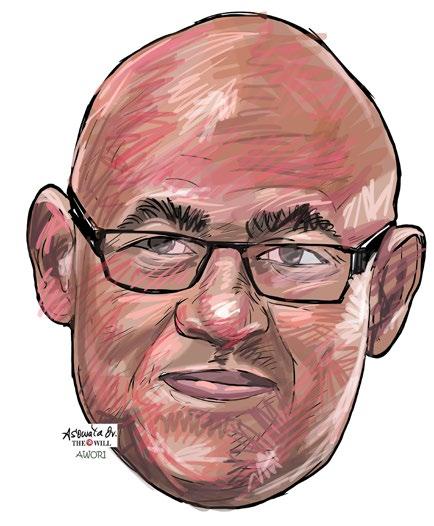
significant tool for product and service design.
The 2025 PBSI builds its model, with emphasise on five yardsticks:
(i)capital adequacy and sizes, given the ongoing regulatory recapitalisation;
(ii) asset quality and growth as elevated yields and macroeconomic volatility necessitate a focus on loan asset quality, NPL ratios, and sustainable asset growth;
(iii) digital transformation as e-banking income as a proportion of gross earnings underscores digital integration and readiness;
(iv) profitability and efficiency, since cost-to-income ratio (CIR), net interest margin (NIM), and earnings growth reflect operational resilience:
(v) key governance metrics.
While ETI knocked core Nigerian banks off the top of the Tier-1 totem, much of ETI’s improvement came from operations in francophone West Africa and a few Anglophone countries, excluding Nigeria. Its 67.11% asset growth was a significant push factor that improved its ranking.
The data showed that agricultural products were mainly exported to Europe at ₦1.12 trillion, followed by exports to Asia, valued at ₦431.15 billion. Further analysis showed that ‘Standard quality Cocoa beans’ worth ₦344.17 billion and ₦203.17 billion were exported to The Netherlands and Belgium, respectively. Similarly, ‘Superior quality Cocoa beans,’ worth ₦265.35 billion and ₦92.07 billion were exported to the Netherlands and Belgium respectively. While ‘Cashew nuts Continues on page 35
The report also examined the banks’ recapitalisation efforts and their performance between 2023 and 2024 in meeting the Central Bank of Nigeria (CBN) capital threshold of common equity Tier1 capital (CET 1), specifically N200bn for nationally licensed banks and N500bn for banks with international licenses. All Tier-1 banks are licensed for international operations.
b) Remaining agile and flexible regardless of corporate size will enable leading banks to meet evolving customer expectations. In the new banking reality, elephants must dance or learn to.
c)Co-opetition with fintechs will distinguish the winners from the losers in the money market, as the digital agility of fintechs will offer customers the frontend convenience they seek.
Ecobank’s total assets hit N43.3 trillion in 2024, a 67 percent increase from 2023, pushing it ahead of Access, which now holds N41.5 trillion after a 55 percent rise. This marks a big change from 2023 when Access was the top bank. Ecobank’s strong growth came from higher customer deposits, expanded lending, and gains from its wide African network.
Together, the top five banks Ecobank, Access, UBA, Zenith, and First Holdco now control N171.6 trillion in assets, up 55
Ecobank’s total assets hit N43.3 trillion in 2024, a 67 percent increase from 2023, pushing it ahead of Access, which now holds N41.5 trillion after a 55 percent rise




Continues from page 34
cost of bank deposits, banks are expected to find more creative ways of offering medium- to long-term financing options to emerging growth sectors as they rebalance their lending portfolios.
Proshare analysts believe that sub-economies that may benefit from the recapitalisation of banks include, but are not limited to, the Marine and Blue Economy, the Entertainment and Arts Economy, the Hospitality and Real Estate Economy, and the Mineral Mining and Energy Economies.
A major factor in the banks’ transformation push is the role of technology. The deposit money banks have engaged in aggressive system upgrade to survive the stiff competition from the recapitlisation exercise. This is yielding fruits as captured in their last annual reports.
THEWILL recent findings showed that United Bank for Africa Plc (UBA) came top in digital banking revenue among 10 selected Nigerian deposit money banks (DMBs) according to data from their audited FY 2024 financial statements.
The e-banking income includes revenue from electronic platforms, such as mobile applications, USSD channels, internet banking, ATM, PoS as well as other debit and credit card transactions.
The selected banks include UBA which raked in N284.7 billion in e-banking income during the FY 2024 against N157.1 billion it recorded in the previous year, translating to an 85.9 percent increase.
It was followed by Access Bank with a total digital transaction fee of N178.61 billion which constitutes a 75.6 percent increase against N101.62 billion in FY 2023.
Zenith Bank pooled N80.05 billion in e-banking revenue in FY 2024 against N51.8 billion earned in
the previous year which represents a 54.5 percent increase for the period.
Continues from page 34

The Nigerian Communications Commission (NCC) has collaborated with the Association for Progressive Communications and other institutional stakeholders towards addressing challenges confronting rural network connectivity in Nigeria.
The collaboration resulted in a two-day workshop hosted in Abuja, to explore policy framework for enabling community networks towards bridging the digital divide and accelerating socio-economic development in Nigeria’s underserved and unserved communities.
The forum brought together regulators, community leaders, technical experts and potential foreign investors, among others, to examine policy and regulatory barriers, explore innovative funding mechanisms, ensure sustainable renewable solutions and strengthen collaboration with stakeholders.
Addressing participants at the workshop, the Executive Vice Chairman of NCC, Dr. Aminu Maida, said the workshop is important to bridging the digital divide in Nigeria and foster inclusive social economic development.
“This workshop is an opportunity for all of us to harness the expertise, insights,

FirstBank e-banking transaction income increased to N77.01 billion in FY 2024 from N66.34 billion in the previous year, representing a jump of 16.08 percent during the period.
Guaranty Trust Bank posted a total digital transaction revenue of N56.56 billion which represents a 38.5 percent increase from N40.82 billion it achieved in the previous year -- ranking fifth among the Tier-1 banks, also referred to as the FUGAZ group.
The reports showed that Stanbic IBTC Bank posted a total e-banking revenue of N63 billion which is 11.1 percent higher than 56.7 billion it generated in the previous period.
Others are Wema Bank and Fidelity Bank which posted N14.1 billion and N7.02 billion against N7.3 billion and 4.02 billion in FY 2023, which translated to 93.2 percent and 72.9 percent respectively.
FCMB’s digital revenue declined by 22.83 percent from N17.69 billion in FY 2023 to N13.65 billion in the review period.
Sterling Bank’s N8.58 billion in FY 2023 was used for FY 2024 as it is yet to publish its FY 2024 results due to a transition in its core banking application, according to its parent company, Sterling Financial Holdings.
The push for migration to new core systems is driven by multiple factors, including security, cost management, and operational flexibility. Industry experts explained that security concerns are a major reason for the upgrade.
With cyber-attacks on the rise, banks are seeking more secure systems to protect customer data and financial information.
In shell’ worth ₦87.56 billion and ₦69.74 billion were exported to ndia and Vietnam, respectively.
On the other hand, total imports of agricultural goods in Q1, 2025 stood at ₦1.03 trillion or 6.71% of total imports. This represents a rise of 12.52% when compared to the value recorded in Q1, 2024 (₦920.54 billion) but decreases by 5.02% compared to the value recorded in Q4, 2024 (₦1.09 trillion).
Nigeria recorded a positive trade balance in Q1 2025, as total exports outweighed imports, according to NBS.
Total merchandise trade in the quarter stood at N36.02 trillion, marking a 6.19% increase compared to Q1 2024, although slightly down 1.58% from the previous quarter (Q4 2024).
Exports rose to N20.60 trillion, reflecting a 7.42% year-on-year (YoY) growth and a 2.92% quarter-onquarter increase.
Exports accounted for 57.18% of total trade, with crude oil exports contributing N12.96 trillion (62.89%). Non-crude oil exports stood at N7.64 trillion, while non-oil
products accounted for N3.17 trillion or 15.38% of total exports.
Imports declined by 7.02% from N16.59 trillion to N15.43 trillion, though still 4.59% higher YoY compared to Q1 2024. Top import partners included China, India, the United States, the Netherlands, and the UAE. The main imported commodities were gas oil, premium motor spirit (petrol), crude petroleum oils, cane sugar, and durum wheat.
Top export destinations were India, the Netherlands, the U.S., France, and Spain. Key exported products included crude oil, liquefied natural gas, petroleum gases, urea, and cocoa beans. With exports surpassing imports by N5.17 trillion, Nigeria posted a trade surplus, highlighting continued reliance on crude oil exports and a modest expansion in non-oil trade.Analysts believe that Nigeria’s Q1 2025 trade surplus signals a resilient export performance driven by strong crude oil sales and moderate growth in non-oil exports. The drop in imports suggests reduced domestic demand or improved local sourcing.
and experiences of diverse stakeholders present here which includes the regulators, community leaders, technical experts and potential foreign providers to address the critical challenges such as affordable devices, access, licensing, spectrum allocation, infrastructure development, sustainability and institutional monitoring,” said Maida, who was represented by the Executive Commissioner, Technical Services, NCC at the event, Abraham Oshadami.
Maida said the workshop demonstrates the Commission’s commitment to advancing digital inclusion, particularly in underserved and unserved areas. “At NCC, we recognise the transformative potential of community center networks in achieving this important goal,” he said.
The EVC said NCC was committed to “this journey and views this workshop as a catalyst for meaningful change,” stating that the expertise, perspectives and commitments will shape the future where every Nigerian, regardless of his or her status, will have meaningful access to opportunities from digital connectivity.
In her remarks, Co-manager of the Association for Progressive

Communications’ Local Network (LocNet) initiative, Kathleen Diga, noted that the collaboration was to tackle identified hindrances to digital inclusion. “This is a space where we can be open and exchange ideas of possibilities, opportunities that will remain in realising values of a diversified ecosystem.”

Diga said, “I believe this workshop presents a moment in time that we can explore the bottom-up approach in local communities, small social enterprises, corporative among others, which have the ability to fill some of the digital gaps that remain unfilled,” she said, adding emphasising the need to recognise that community centre connectivity exists and they are grow throughout the global south, which, she said, are a “strategic response to digital exclusion.”
The workshop featured presentations from the NCC, the Association for Progressive Communications and other institutional stakeholders such as the Rural Electrification Agency (REA) and the Central Bank of Nigeria (CBN) all geared towards exploring a joint policy framework to address rural digital divide.
The Association for Progressive Communications is a 35-year-old international network member-based organisation encouraging digital inclusion in the unserved communities, particularly with communities in the global south and the workshop, through its LocNet initiative aimed at crafting an enabling inclusive regulatory framework for community networks in Nigeria.
‘Nigeria
BY MARCEL

part from President Bola Ahmed Tinubu’s amorphous ‘Renewed Hope’ mantra, it looks obvious that there has not been any discernible overarching economic blueprint by his administration. This accounts for why there has been a lot of ‘trial and error’ initiatives and failed policies in the past two years of his four-year tenure. For the same reasons, the unintended outcomes of many of the policies have far outweighed their so-called gains. Indeed, policy somersaults have become a hallmark of the government of the day, so far, as it gets overwhelmed with providing all manner of palliatives to assuage the pains of the citizenry.
Under the banner of economic reforms, not a few policies have been put in place; but most have ended up unleashing poverty, joblessness, and destitution on majority of the citizenry. Nigerians have been exposed to the ravaging effects of an unprecedented hyperinflationary trend that brought their purchasing power to its weakest in several decades.
From about 22 per cent in May 2023, the headline inflation rate spiked to almost 35 per cent at the close of 2024. Similarly, the Naira exchange rate against the dollar nosedived from below N480/US$ as of end-May 2023 to over N1620/US$1 as of today.
A liter of fuel (Premium Motor Spirit, PMS), for instance, which sold for about N200 at end-May 2023, now goes for N1000 or more. Tight monetary stance saw the Central Bank of Nigeria (CBN) raise its benchmark Monetary Policy Rate (MPR) from about 18 per cent in June 2023 to 27.5 per cent since November 2024. A jump of almost 10 per cent in 20 months!
This very high interest rates regime, indicated by the soaring MPR, has thoroughly whittled access to funds to Small and Medium-scale Enterprises (SMEs) and other economic agents. Not a few businesses have shut down or fled the country due to the lingering policy-induced harsh operating environment.
The resultant effect of all this has been an uptick in import-dependency by more Nigerians. Thus, the Nigerian Economic Summit Group (NESG’s) data show that Nigeria’s import bill rose by a whopping 63.3 per cent (year-on-year) to N14.7 trillion in the third quarter 2024, up from N9 trillion in the same period a year earlier.
The NESG said in its ‘Foreign Trade Alert’ that “the surge (in imports) underscores the country’s growing dependence on foreign goods amid stalled local production efforts.” Noting that much of the import expenses went to energy-related items, the NESG said “until local (refining) capacity issues are resolved, the demand for FX to finance imports will remain elevated.”
It is against this background that the approval by the Federal Executive Council (FEC) of a Presidential Executive Order early in May to introduce a ‘Nigeria First’ policy, seems most apposite. But while the nittygritty of the new policy is yet in the making, the entire idea of the initiative demands some interrogation and analyses.
First, ‘Nigeria First’ is coming at a time it looks like a mimicking of the United States’ mantra ‘America First’, put together by President Donald Trump. But, while the similarity in name is obvious, Trump’s
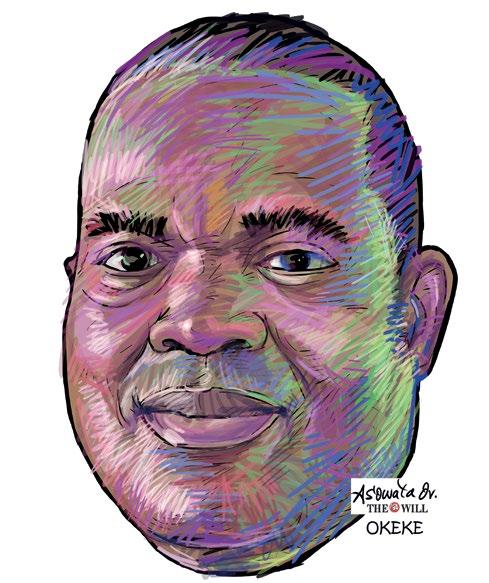
‘America First’ is framed to ensure that America’s interests are paramount, and that the country would act to protect and advance them.
‘Nigeria First’, on the other hand, from available information, is focusing merely on getting ministries, departments and agencies (MDAs) to begin to procure locally-produced items, rather than importing. Towards this end, the Bureau of Public Procurement (BPP) is being mandated via the Executive Order to play a critical role by ensuring that the MDAs procure available and durable local substitutes to all (hitherto) imported goods and services for their needs.
Under Trump’s ‘America First’, according to The Wall Street Journal, the world is seen as an arena where nations, non-governmental actors, and businesses compete for power and resources. The new doctrine is also seen as a manifestation of rising nationalism globally, with other countries also prioritizing their domestic interests.
The question is therefore apt as to whether Nigeria truly has the guts and muscles to go beyond the symbolism of forcing “local content” improvement on the MDAs only? While America would be driven by “rising nationalism” and “prioritization of its domestic interest”, Nigeria seems set to apply a mere placebo.
A true replication of ‘America First’ in Nigeria would require a truly diversified economy: where substantial foreign exchange earnings come from many other sources than export of crude oil. Unfortunately, the Nigerian economy, despite all pretenses, is yet largely a mono-product economy; and it’s been so for many decades.
Related to this quagmire is the socio-cultural fixation of Nigerians with the consumption of foreign goods and services. Irrespective of social class, creed or tribe, Nigerians have continued to live with a high preference for foreign goods; and an ever-rising propensity to import them. This proclivity also underpins thriving smuggling ‘business.’
It therefore goes without saying that any meaningful attempt at making Nigerians consume ‘Made-in-

A true replication of ‘America First’ in Nigeria would require a truly diversified economy: where substantial foreign exchange earnings come from many other sources than export of crude oil
Nigeria’ must place a very high accent on altering the tastes and predilections of our people. It also entails deliberate leapfrogging of the economy to improve production and productivity; and drop the toga of a mere consuming economy!
There is also the challenge of ‘Nigeria First’ being hosted and driven only by the Bureau of Public Procurement (BPP). Apart from the entrenched ruinous corruption of which BPP is not immune, the agency is unlikely to have the full complement of technocrats and other resources to attain the ‘nationalistic’ initiative of ‘Nigeria First.’

Essentially, BPP is set up for monitoring and overseeing public procurement, ensuring transparency, efficiency, competition, integrity, and value for money in government contracts. But, if the much-touted ‘Nigeria First’ is to truly impact Nigeria, its articulation and execution requires a tight and broad public and private sector partnership at all levels.
The requisite psycho-sociological and cultural re-orientation of Nigerians with respect to the consumption of ‘Made-in-Nigeria’ is certainly outside the purview of BPP. The badly needed accelerated filling up of the extant huge infrastructural gap is definitely outside the BPP’s domain.
The diplomatic maneuvering and trade (re-) alignments within the Economic Community of West African States (ECOWAS) as well as under the African Continental Free Trade Agreement (AfCTFA) are also very critical. At the moment, therefore, it looks safe to say that Nigeria is ‘too weak’ to effectively realize the ‘Nigeria First.’
This, in part, is why it is necessary to admonish that what the country is about to put in place is not a mere caricature of ‘America First.’ The Bola Ahmed Tinubu administration has had many failed or ill-digested policies, and cannot afford to have one more. ‘Nigeria First’ deserves to be taken through a legislative process to attain proper legal existence. ‘Nigeria First’ should not be a mere brainwave; but a properly articulated blueprint for an accelerated and sustainable development of the country. That is the only expectation!
•Okeke is a practising Economist, Business Strategist, Sustainability expert and ex-Chief Economist of Zenith Bank Plc.


Author: Paul Oluikpe, Deputy Governor at Central Bank of Nigeria
Reviewer: Sam Diala
Swim or Sink: Policy Dynamics in Challenging Environments, is a compendium of ideas underlying the knowledge and skill essential for navigating the arduous tasks of policymaking and implementation.
In today’s convoluted environment driven by rapid technological advancement and innovation, with various interests contending for space, policies play a vital role in achieving a social and institutional order.
This is captured in the author’s view that “Of all the known vehicles for bringing about social and economic change, policies have the most potential for controversy.”
Bearing in mind that effective policymaking and implementation is a sine qua non of addressing the fallouts of social and economic change, the author sets out with a clear explanation of essence of the book. He stated in the Introduction that Swim or Sink is a treatise on policy dynamics, entirely from his objective assessments of policy situations across the globe.
Based on this, the author posits what he considers the seven forces pivotal to policy outcomes, on which he anchors the seven chapters of the book, namely, The Economy, Politics, Ambiguity, Complexity, Instability, Resources, and Execution. He describes these as the seven fundamental forces that shape policy success or failure, stressing that policy rises or falls on them.
In a logical sequence, the author takes the reader through the labyrinths of these forces.
Chapter One, ‘The Economy’, opens with the words of renowned Economist and former Chair of the U.S. Federal Reserves, Alan Greenspan: “The economy is governed more by the psychology of investors and consumers than by the logic of economists and investors.”

The chapter emphasises that no matter how imperative a policy might be, the bottom-line is what the author refers to as ‘pocketbook’ issues. In other words, what is the impact on the people?
According to him, whether the leader is dealing with the Arab Springs crisis, the natural disaster of Hurricane Katrina, the abduction of the Chibok girls by the Boko Haram terrorists, or the unending battles in South Sudan, the common denominator is the effect on the ‘pocket-book’.
To illustrate the place of the economy in policy formulation and implementation, the author highlights a vital economic fact –the role of the customer.
He noted that “Customers evolve with needs”; hence the concept of ‘pocket-book’ should be taken more seriously. As a result, policy-makers need to be familiar and come to terms with the clock-speed of issues and transformations occurring in their domains, especially in the market place.
For instance, changes in the economic landscape show the consumer as principally transactional. The consumer is concerned about the pocket-book impact in his choice of goods and services. This is epitomised with the fact that if a business does not find a solution, or sells the right thing, customers will move on to the next business.
External matters are equally important. Using the role of infrastructure in economic development as an example, the author emphasises that substandard road networks make transport and logistics notoriously onerous leading to price increases which sometimes do not reflect the income-driven demand nexus.
The author says, “Low-quality road construction, poor maintenance, lack of interconnectivity of roads, inadequate
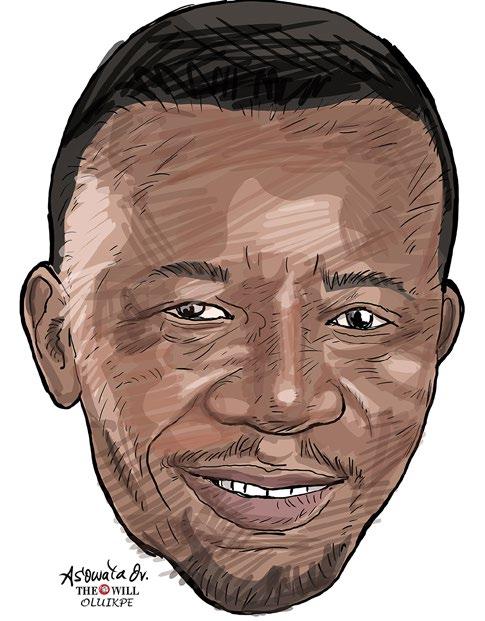
drainage, traffic congestion, safety concerns and corruption are key features impeding the transport and logistic sector of Nigeria.
“Policy can intervene by fixing the roads to ensure the smooth functioning of the market, and help drive the prices down.”
To achieve this, Politics is involved, which is the topic of the second chapter of the book. Alluding to the role of politics as the authoritative allocation of values in determining who gets what, when and how, according to the theory by Harold Laswell, the chapter treats the subject-matter with numerous examples.
In this chapter also, the reader gets to the heart of the subjectmatter concerning the arduous task of policymaking and implementation which results in the swim or sink outlook. He uses many illustrations to substantiate the fact that politics has huge influence on policy, emphasising that policy formulation and implementation rarely exist in isolation from political issues.
“With the complex mix of populations, systems, processes, culture and politics in our modern state, policy-makers are confronted with complex, tricky problems which make straightforward situations not straightforward.”
The author emphasises that “Much of what blunts policy effectiveness is the admixture of political imperatives with economic necessity, with the former clouding and crowding out the latter.” This often results in Ambiguity – the topic of the third chapter.
The author’s treatise on ambiguity is an interesting one, as he leads the reader into what could be seen as the useful paradox of a phenomenon. He refers to ambiguity as a ‘concept’ influential in policy by stressing its dual, yet contradictory purposes in human relations. Interestingly, he sees ambiguity from the prism of its potential to derail policy on one hand, and its capacity to help drive positive outcomes for policy on the other.
Here, the author scopes the theoretical landscape of ambiguity spanning several disciplinary confines to situate the word within its varied contexts. He thereafter dives into the diverse world of knowledge while showcasing his mastery of the subjects.
He touches extensively the unlimited scope of the literary world -- from the arts, history, poetry, philosophy, religion, law, linguistics, sciences even to ambiguity itself, quoting a linguist, Christopher Kennedy’s work entitled, ‘Ambiguity and Vagueness’.
This chapter highlights the fact that a policy-maker’s dilemma with ambiguity begins with the very first thought process
Policy-makers, of necessity, should care about the extent of complexity in their policies, the processes involved in formulating policies, and the interactions such policies could have with stakeholders both internal and external
involved in policy formulation even before implementation is under way. It contains the author’s argument that entities with ambiguous economic policies often oscillate between different strategies which can lead to uncertainties not beneficial to stakeholders.
Despite the challenges emanating from ambiguity, the author argues that policy ambiguity is not entirely detrimental. It can provide flexibility, allowing for adaptive implementation in response to changing circumstances or new information. To minimise the negative impacts, the author advises policymakers to strike a balance between what he refers to as necessary ambiguity and sufficient clarity.
He emphasises that ambiguity could be a problem to be solved or a tool to be used because of the complexity that results from it. Chapter 4 of the book discusses Complexity – another force that drives policy.
Interestingly, the author sees complexity in every facet of human existence – from the nation state to the activities of a corporate body, a local council, voluntary organisation or family unit, stressing that the causes of these complexities are often not far-fetched.
“Policy-makers, of necessity, should care about the extent of complexity in their policies, the processes involved in formulating policies, and the interactions such policies could have with stakeholders both internal and external.”
He expands the discourse under four sub-headings: Complexity of our origins, Complexity of civilisation, Complexity of institutions and processes, and Policy complexity.
For effective policymaking and implementation, he advises the authorities concerned to see policy complexity as essential for dealing with the instability that emanates from its occurrence. Chapter 5 of the book is about Instability.
According to the author, instability has the potential to profoundly affect policy. He shows that instability and policy are intertwined and both are mutually reinforcing and not exclusive of each other.
“Policymakers are therefore wise to pay attention to risks of instability in policy constructs. Instability has various manifestations. It can be internal, external or combined.”
All this hinges on the need for resources as inevitable in achieving policy objectives. In chapter 6, the author deals on the role of Resources in policy making and implementation. Quoting Mahatma Gandhi’s philosophy that ‘The earth has enough for everyone’s need, but not enough for everyone’s greed’, the author emphasises that resources play a key role in policy success or failure, as policies are built upon the pedestal of resources, and must, therefore, be judiciously applied. Governments, institutions, societies, families and individuals make plans based on available and prospective resources.
Photo Editor: Peace Udugba [08033050729]
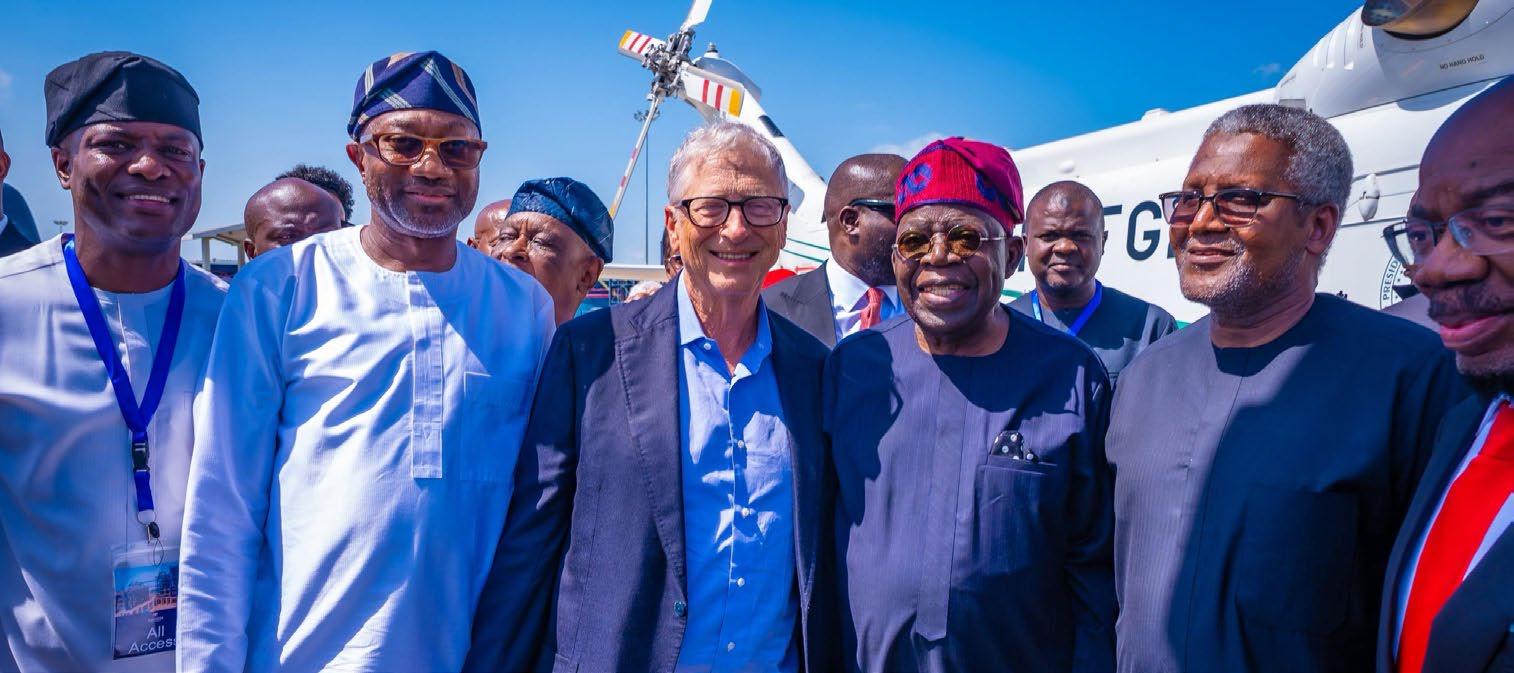
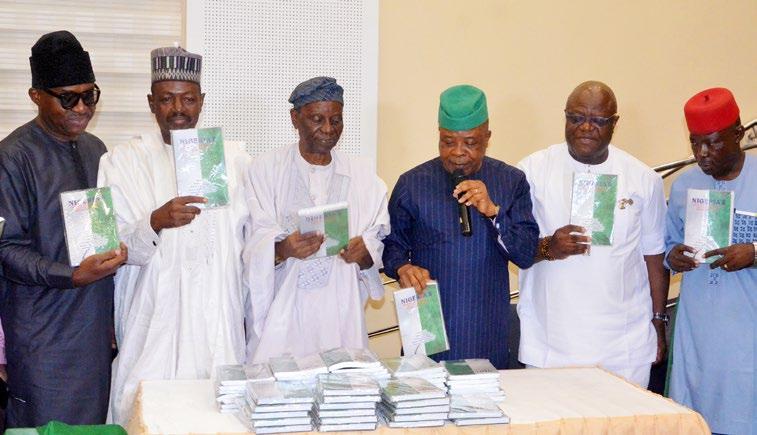
L-R: Representative of the Executive Vice Chairman, FCCPC, Mr Louis Odion; Panelist/former Minister of Information, Mr Labaran Maku; Guest Speaker/Chancellor, Tonnie Iredia University, Prof. Tonnie Iredia; Chairman of the occasion/ former Governor of Imo, Rep Emeka Ihedioha; Registrar, Baze University Abuja, Prof. Abiodun Adeniyi and the Consultant, ECOWAS Parliament Abuja, Dr Emeka Nwosu, during the maiden National Association of Political Correspondents (NAPOC) 90’s Annual Lecture Series and inauguration of NAPOC Book in Abuja on June 11,

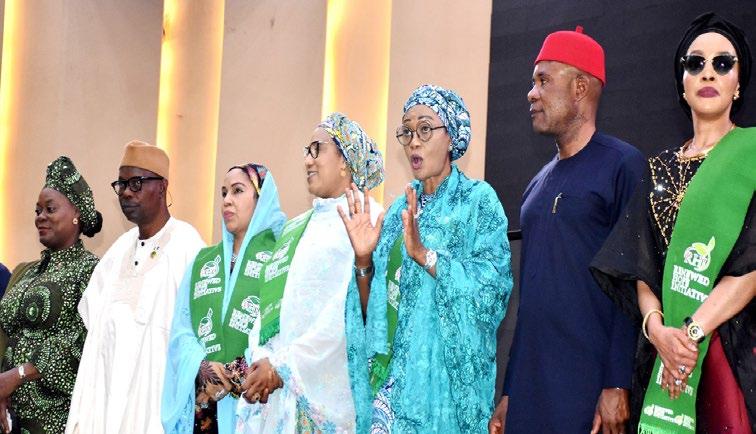







BY JUDE OBAFEMI
Victor Osimhen has once again declined a major offer from Al Hilal, reinforcing his intention to remain within Europe’s top leagues. Reports indicate that Al Hilal had agreed a N75 million transfer fee with Napoli and tabled a fifth offer to Osimhen, including a net wage approaching N30–35 million per season, equivalent to roughly £650,000 per week. Despite the financial incentive, Osimhen rejected the deal, signalling a clear preference to pursue his career in Europe rather than accept a move to the Saudi Pro League.
Osimhen’s outstanding performance during his loan spell at Galatasaray in the 2024/2025 season strengthens his appeal. He recorded 37 goals in 41 appearances and was the Super Lig’s top scorer with 26 domestic goals, while adding a total of 33 in all competitions. Turkish media emphasise how his figures shattered existing records, breaking the league’s foreign-player single-season mark. He also contributed decisively to Galatasaray’s Turkish Cup and league triumphs.
Actively pursuing Osimhen, the Saudi Pro League club confirmed that travel and a medical had been scheduled in Saudi Arabia. All of these were put in place before
he remains at Napoli, both parties will need to recalibrate


Osimhen pulled out, despite Napoli’s acceptance of Al Hilal’s fee. The club revealed that the club-to-club deal was complete, but the player opted against going. This demonstrates that his decision was based on personal career objectives, rather than external obstacles or emotional reactions.
In Europe, interest from teams, such as Manchester United, Chelsea, PSG, Real Madrid and even Liverpool has risen. United have been linked as contingency for their primary target Viktor Gyökeres. Nevertheless, their ability to finalise a transfer may be hampered by Osimhen’s wage demands and Napoli’s high valuation. Chelsea and PSG are monitoring his situation as well. PSG reportedly hold the financial capacity to meet both his wages and a release clause set at approximately £63 million (N75 million). The capability of the French and European champions to absorb both transfer fee and salary demands could put them ahead of other European suitors.
Reports vary over Napoli’s stated transfer clause. Some outlets repeat the N75 million figure that Al Hilal matched, others report a much larger clause of N130 million, introduced as part of a contract renewal last August. The latter figure aligns with an official extension that tied Osimhen to Napoli until 2026 under a N130 million release clause. The confusion over the contract’s specifics complicates exit negotiations.


Despite his stellar goal-scoring form, European interest has remained restrained. This appears partly due to Napoli’s refusal to accept anything under the full clause and Osimhen’s salary expectations. Chelsea reportedly abandoned an attempt last summer when they could not satisfy Napoli’s price tag. PSG and United are aware of the obstacles: Napoli’s firm stand and Osimhen’s ambition for UEFA Champions League competition are both significant factors.
Al Hilal’s intentions were clear. The club had
been preparing for the Club World Cup, with Simone Inzaghi as coach leading their recruitment drive. With Osimhen’s rejection, they have shifted interest to other strikers such as Darwin Núñez and Richarlison. They are now faced with a striker vacancy to fill before the competition begins.
Osimhen’s rejection marks at least the third refusal of Saudi offers, with reports dating back a year. The forward previously rebuffed salaries equivalent to N30–45 million per year before rejecting the most recent N120 million over three years package. Galatasaray remain keen to sign him permanently and have reportedly offered around N26 million net per season. They are in a good position after his exceptional season, but whether they can match Napoli’s valuation remains unclear. They may need to negotiate for additional funds or include incentives linked to performance and European competition qualification.
Osimhen’s decision turns attention back to Europe. PSG appear willing to fulfil all terms, though their summer tactics remain cautious. Man Utd might pursue him, but they face internal budget constraints. Chelsea and Real Madrid remain possible but have yet to progress from speculation. Napoli within this context maintain control. The player must weigh salary, sporting opportunity and the chance to play in the UCL.
His loan to Galatasaray has ended, and Napoli insist he will return for pre-season if a deal remains unresolved. Napoli themselves spoke of a strained relationship, yet have not actively blocked his departure previously, suggesting openness to an acceptable offer. Osimhen owes another season under contract and will push for a move before pre-season begins.
Contractually, he is tied until 2026, so Napoli are in no rush to sell. The club may seek to preserve their investment by holding firm on valuation. For Osimhen, though, another season in the UCL or elsewhere, will define his long-term legacy. If he remains at Napoli, both parties will need to recalibrate.
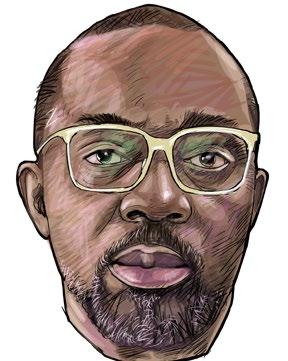

ogannah@thewillnews.com
state governments poured over N13.1 billion into sponsoring Muslim pilgrims for the 2025 Hajj, while millions of citizens lack access to basic healthcare and children study in crumbling schools. Sokoto alone spent N1.44 billion on 3,200 pilgrims and Jigawa allocated N6.3 billion. In a nation where debt exceeds N134 trillion and poverty grips over 40 percent of the population, why are leaders prioritising personal religious journeys over the survival of their people? This is a question every rational mind must ponder.
The National Hajj Commission of Nigeria (NAHCON) managed the 2025 Hajj for approximately 60,000 pilgrims, with fares ranging from N8.3 to N8.7 million per person due to the naira’s depreciation. Unlike in 2024, when the federal government provided a N90 billion subsidy, no federal support was offered in 2025, leaving states and individuals to cover costs.
Nevertheless, according to data from the Foundation for Independent Journalism report, several states allocated significant sums. Sokoto distributed N450,000 per pilgrim, Ebonyi spent N551 million on 33 pilgrims, averaging N16.7 million each, and Bauchi, despite a N145 billion debt, committed N248 million. Jigawa’s N6.3 billion naira payment to NAHCON stood out as one of the largest. Concurrently, the Nigerian Christian Pilgrims Commission (NCPC) facilitated pilgrimages to Jerusalem, with states like Kano spending N2 billion on 1,000 Christian pilgrims and Plateau allocating N300 million. These figures underscore a pattern of religious expenditure across faiths that drains public resources.
Nigeria’s economic crisis makes this spending particularly jarring. The national debt stands at over N134 trillion, with inflation exceeding 33 percent in 2025. World Bank data indicates that over 40 percent of Nigerians live below the poverty line and public sector workers in 30 states face delays in receiving their wages. Pensioners have protested unpaid allowances, some for over a year. Healthcare is critically underfunded, with Nigeria’s health budget at five percent of gross domestic product, far below the World Health Organisation’s 15 percent benchmark. Hospitals lack electricity, drugs and staff, contributing to a maternal mortality rate of 512 per 100,000 live births. Education is equally neglected, with UNESCO reporting 10.5 million outof-school children and many schools lacking basic infrastructure. Against this backdrop, the decision to fund religious pilgrimages, whether to Mecca or Jerusalem, raises serious questions about fiscal responsibility.
The allocation of public funds to religious pilgrimages violates Nigeria’s secular constitution. Section 10 of the 1999 Constitution prohibits the state from adopting any religion, yet both Hajj and Christian pilgrimage subsidies favour specific faith groups. Muslims, roughly half of Nigeria’s population, benefit from NAHCON’s coordination, while Christians access NCPC support, but non-religious citizens and adherents of other faiths receive no equivalent funding. In 2025, the NCPC’s budget included a N5 billion insertion for vague “pilgrimage support,” mirroring NAHCON’s own N5 billion padding scandal. Such funds often benefit bureaucrats, political office holders and their cronies rather

than pilgrims. Both Muslim and Christian pilgrimage subsidies divert resources from critical needs like poverty alleviation and infrastructure, offering negligible economic returns.
This expenditure also fuels patronage politics. Subsidies for both Hajj and Christian pilgrimages often benefit politically connected individuals rather than the poorest citizens. Ebonyi’s N16.7 million pilgrim support suggests lavish packages, while Kano’s N2 million per Christian pilgrim raises similar concerns. Local councils in Ebonyi contributed 266 million naira to Hajj, diverting funds meant for community development. NAHCON’s mismanagement further compounds the issue. In 2025, the commission spent N3 billion on 300 medical personnel who remained idle in Saudi Arabia due to licensing issues, leaving pilgrims to pay six Saudi Riyals each for non-existent clinic services. Most of these are characteristic of the budget-padding syndrome that is afflicting economic indices as most of these funds are often siphoned by officials and legislators. This is why there are reported inefficiencies in pilgrimage logistics due to inflated costs without clear benefits.
The economic toll of this spending is undeniable. Nigeria’s unemployment rate continues its upwards trend, with 70 percent of youths jobless. Education, allocated only seven percent of the 2025 federal budget, suffers from underfunding, perpetuating poverty and limiting economic growth. By contrast, Malaysia, a
Muslim-majority nation, funds Hajj through a private savings scheme called Tabung Haji, freeing public resources for healthcare and education. Malaysia’s Human Development Index of 0.803 far surpasses Nigeria’s 0.535, illustrating the benefits of prioritising public goods. Nigeria’s focus on religious subsidies, whether Muslim or Christian, diverts funds from productive sectors, stifling development and deepening dependence on debt.
Some defend pilgrimage subsidies, arguing they foster social cohesion or represent a small fraction of state budgets. Others claim they boost local economies through travel agencies. However, these arguments falter under scrutiny. Cohesion is better achieved through equitable services like healthcare and education, which benefit all citizens regardless of faith. The N13.1 billion spent on Hajj and billions more on Christian pilgrimages could fund significant improvements at home rather than pad the economic returns of the pilgrimage countries. Sokoto’s N1.44 billion could pay 4,000 teachers annually, while Kano’s N2 billion could equip 100 health centres. The economic impact of pilgrimage spending is minimal compared to investments in human capital, which create lasting jobs and growth. Nigeria must reform its approach to religious funding. Phasing out subsidies for both Hajj and Christian pilgrimages would free resources for critical sectors. The Hajj Savings Scheme, supported by banks like Ja’iz and Taj, offers a private funding model that could replace state sponsorship. Christian pilgrimages could adopt similar schemes, ensuring personal responsibility for spiritual journeys. A clearer separation of religion and state would prevent future misallocations, fostering a more inclusive Nigeria. Countries that fail to separate religion and state often create conditions where crises deepen, terrorism flourishes, and economies weaken. A 2020 Pew Research Center study found that 70 percent of countries with high government restrictions on religion face elevated social hostilities, including religion-related violence. In Nigeria, state funding of pilgrimages, reinforces faith-based governance, creating opportunities for groups like Boko Haram to exploit religious sentiment in the north. The 2025 Global Terrorism Index reported Nigeria accounted for 8 percent of global terrorism deaths, driven by Boko Haram’s attacks on civilians and schools, which disrupt agriculture and trade, contributing to 33 percent inflation. Yemen, where state-backed religion dominates, saw 90 percent of 2023 terrorism deaths in conflict zones and a GDP per capita below 1,000 dollars. Conversely, Turkey, with minimal religious funding, maintains a GDP per capita of 12,000 dollars and fewer terrorism incidents, demonstrating the stability of secular governance.
Nigeria’s leaders face a choice: continue funding religious pilgrimages while hospitals collapse and schools decay or redirect public funds to serve all citizens. The N13.1 billion naira spent on Hajj and billions more on Christian pilgrimages reflect a failure to prioritise survival over symbolism. By ending these subsidies, Nigeria can invest in its people, uphold its secular constitution, and build a future where public finance addresses the needs of the many, not the privileges of the few.
Countries that fail to separate religion and state often create conditions where crises deepen, terrorism flourishes and economies weaken